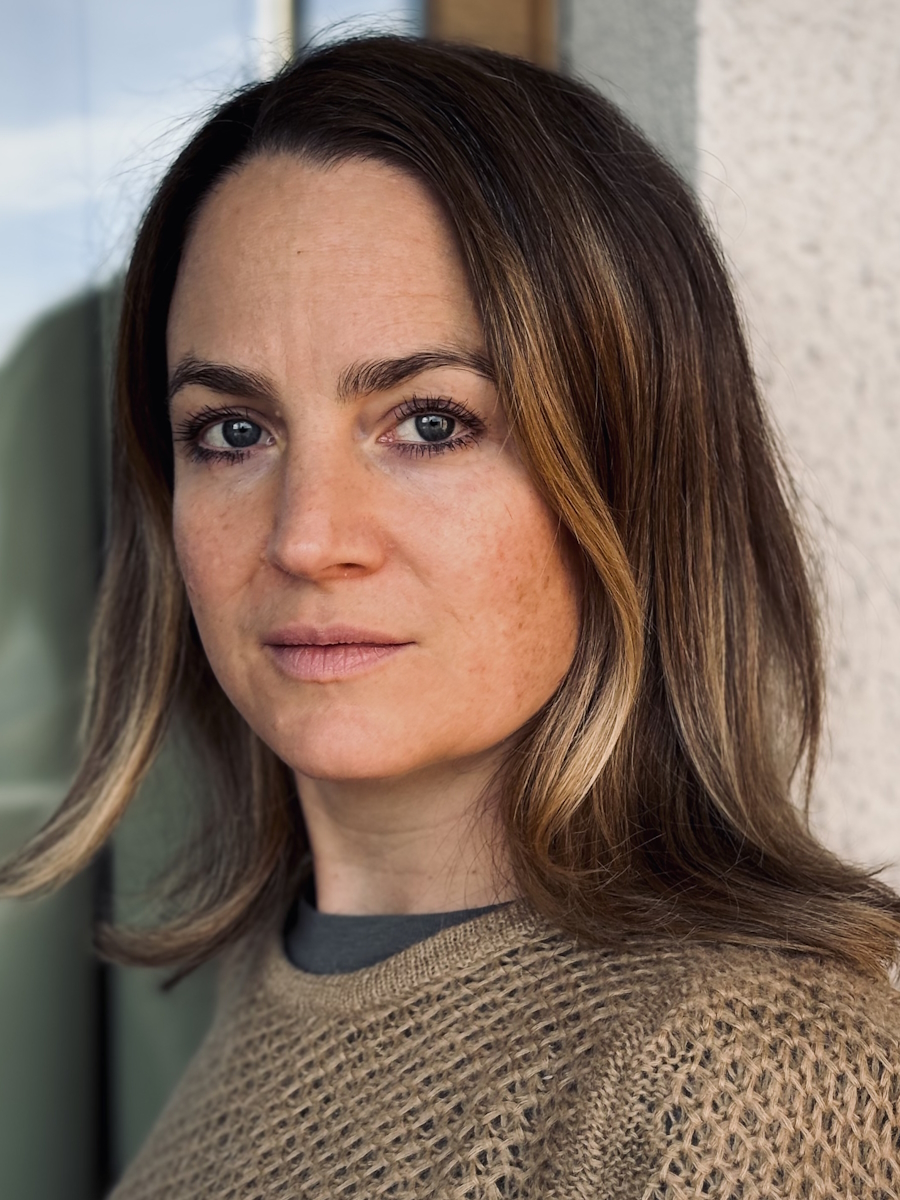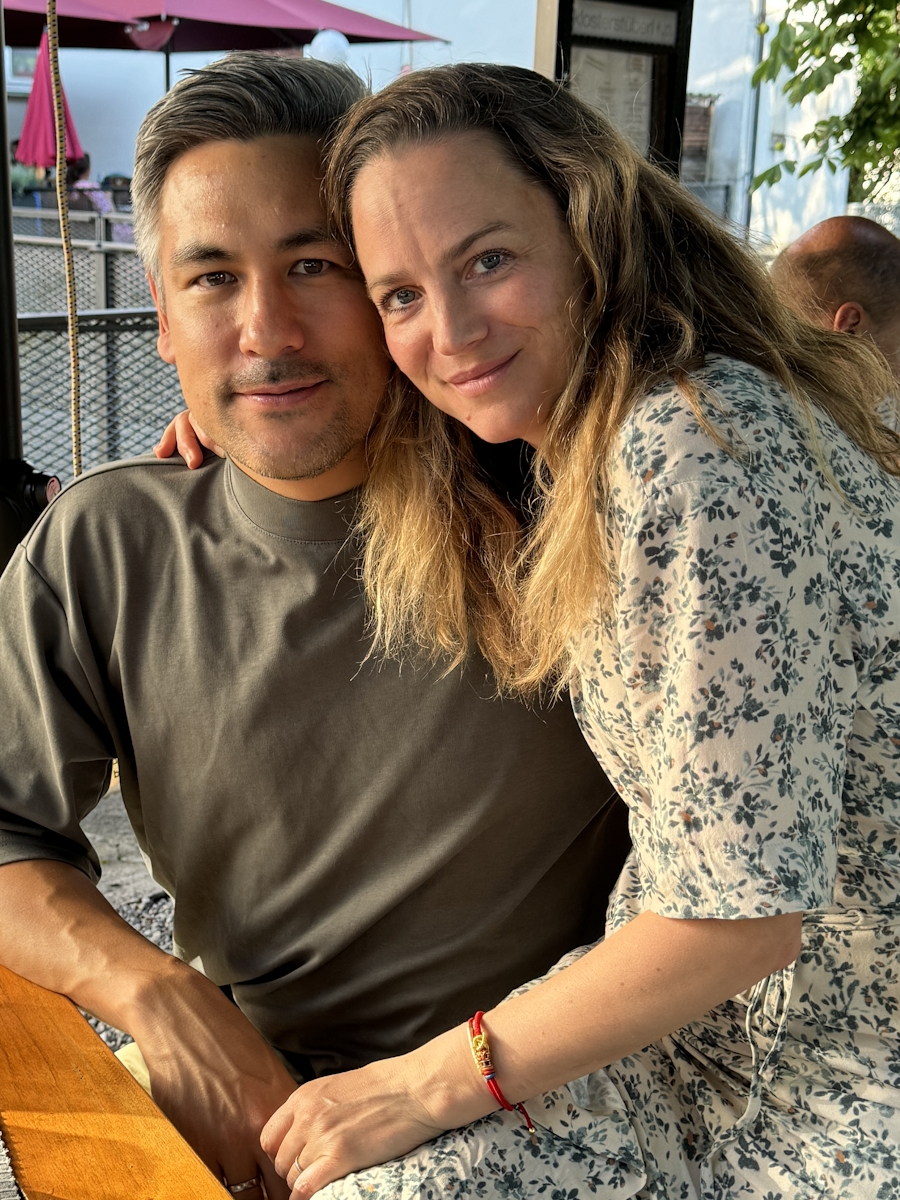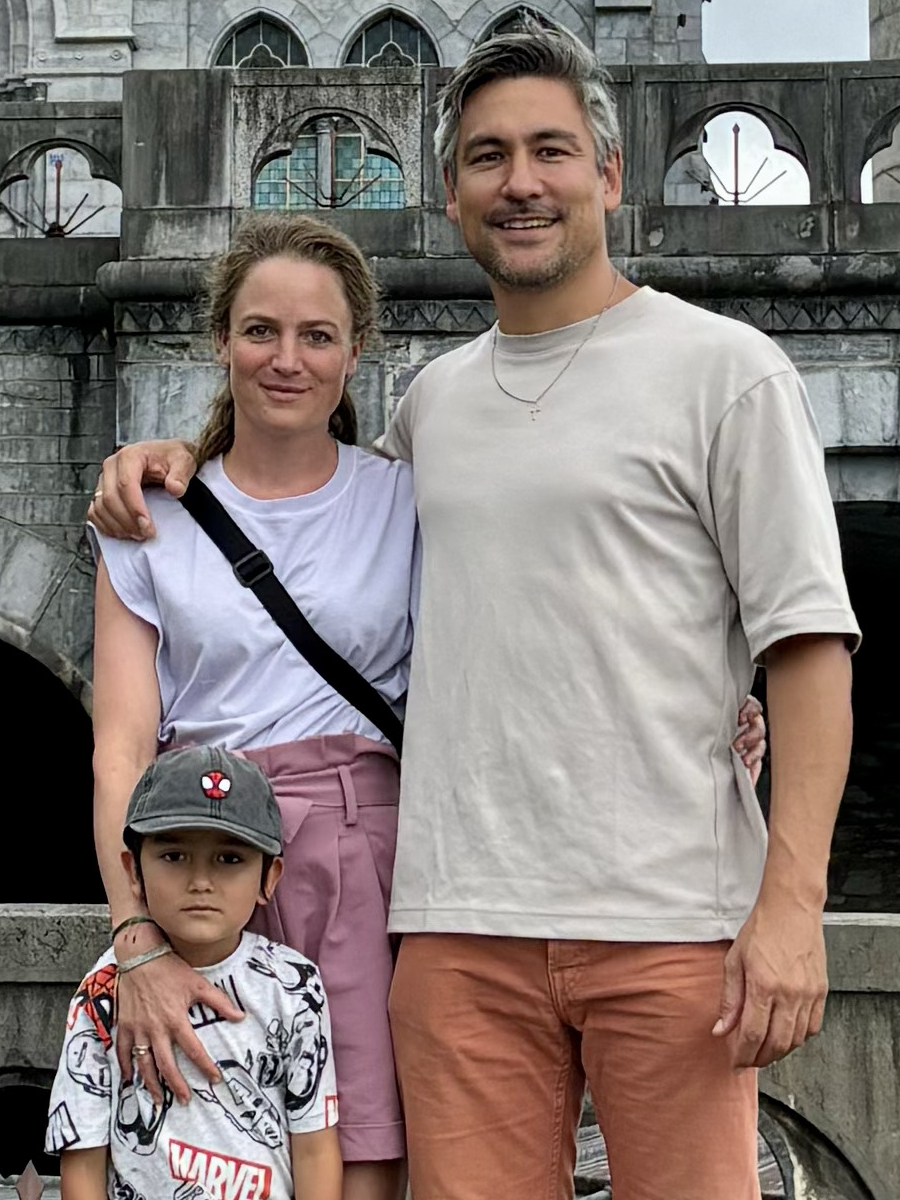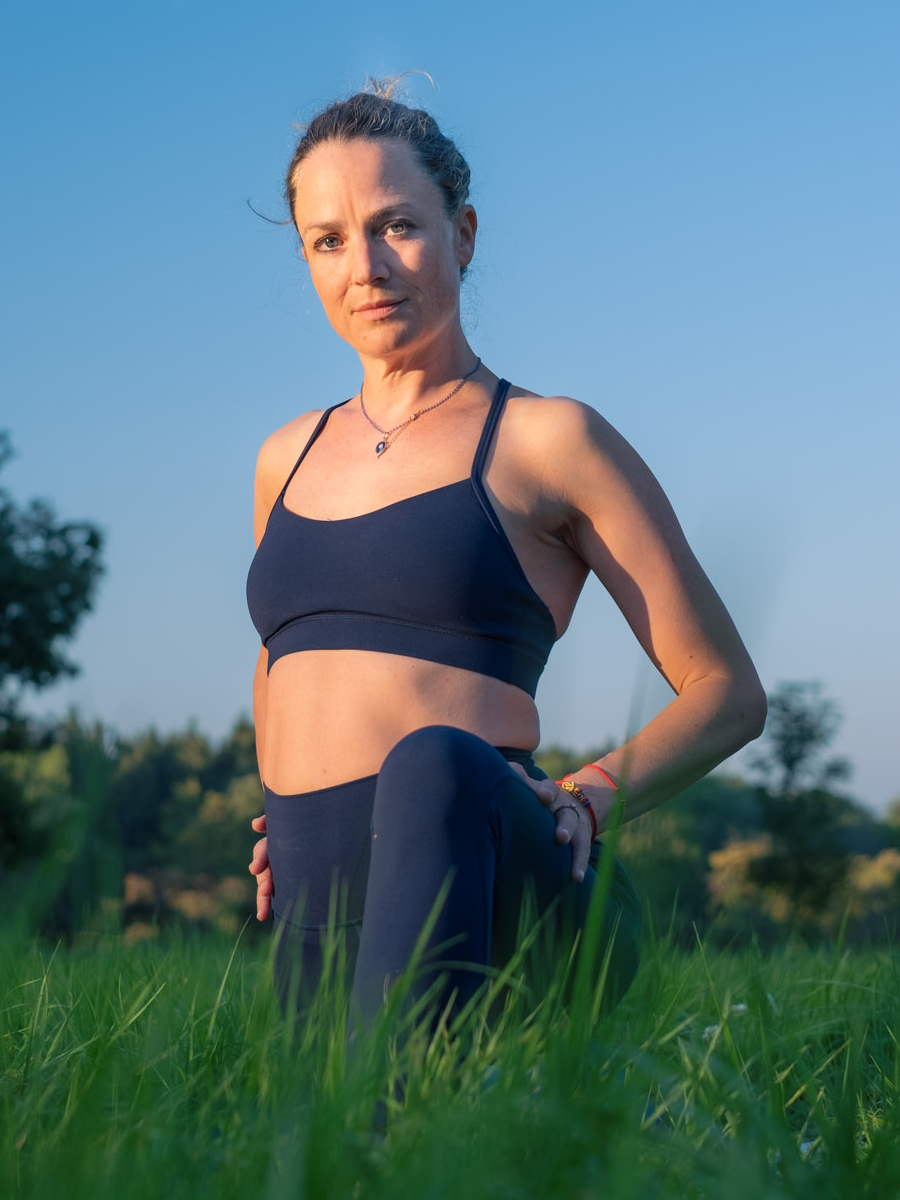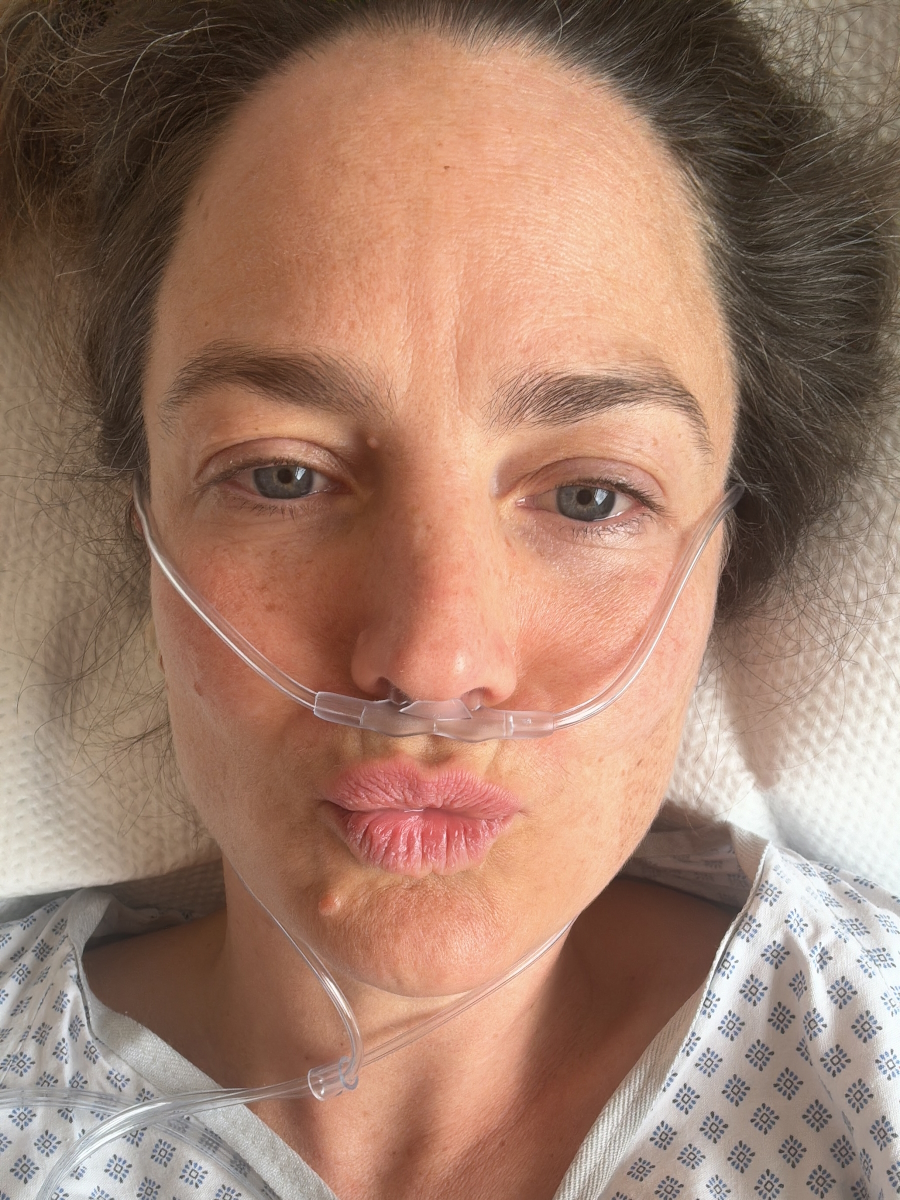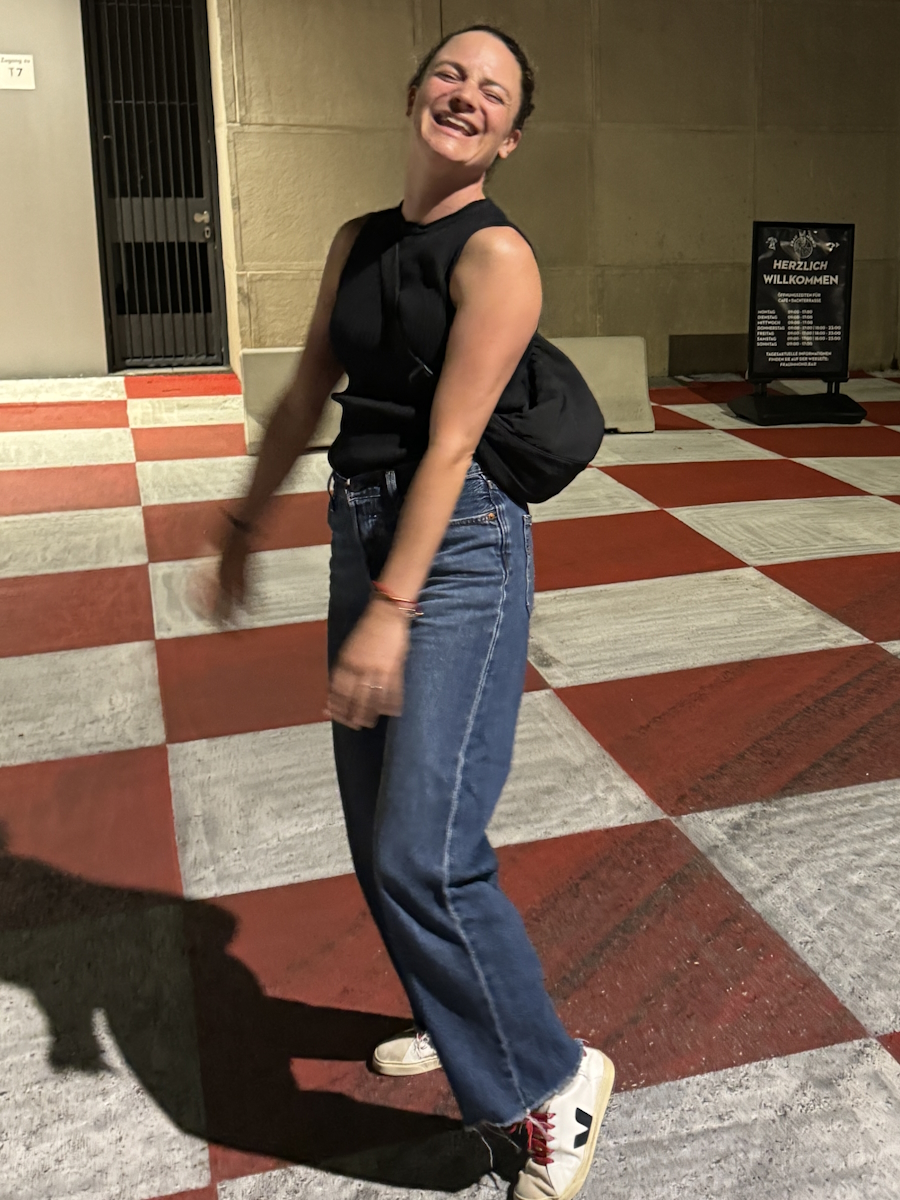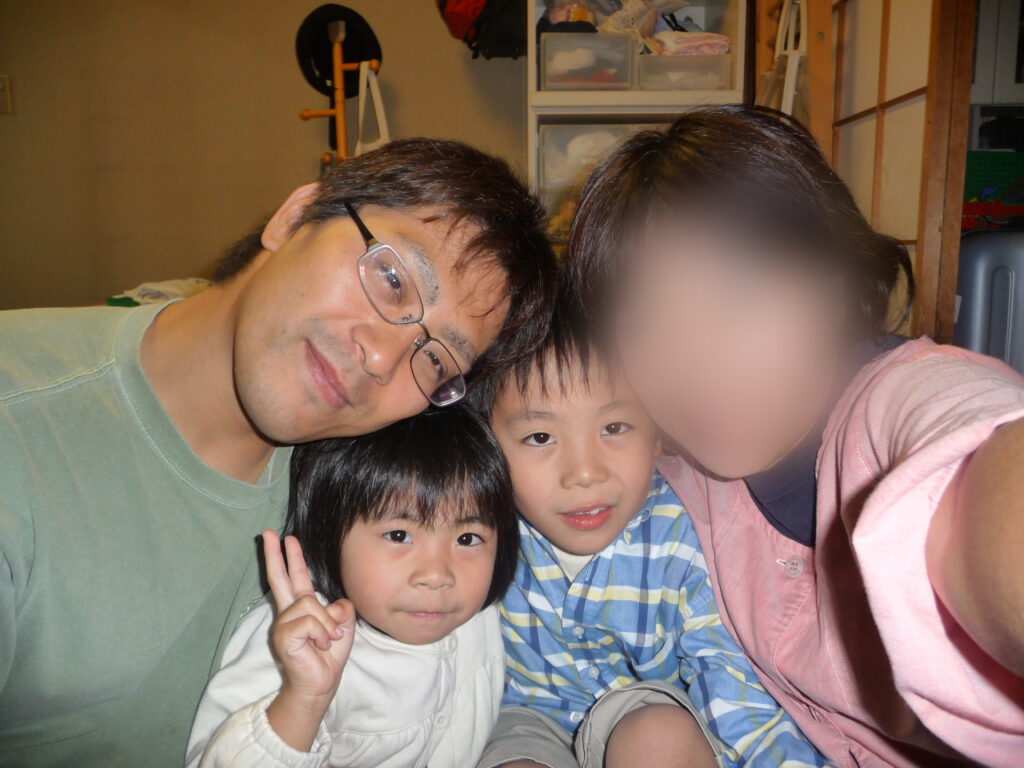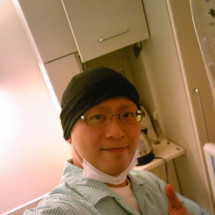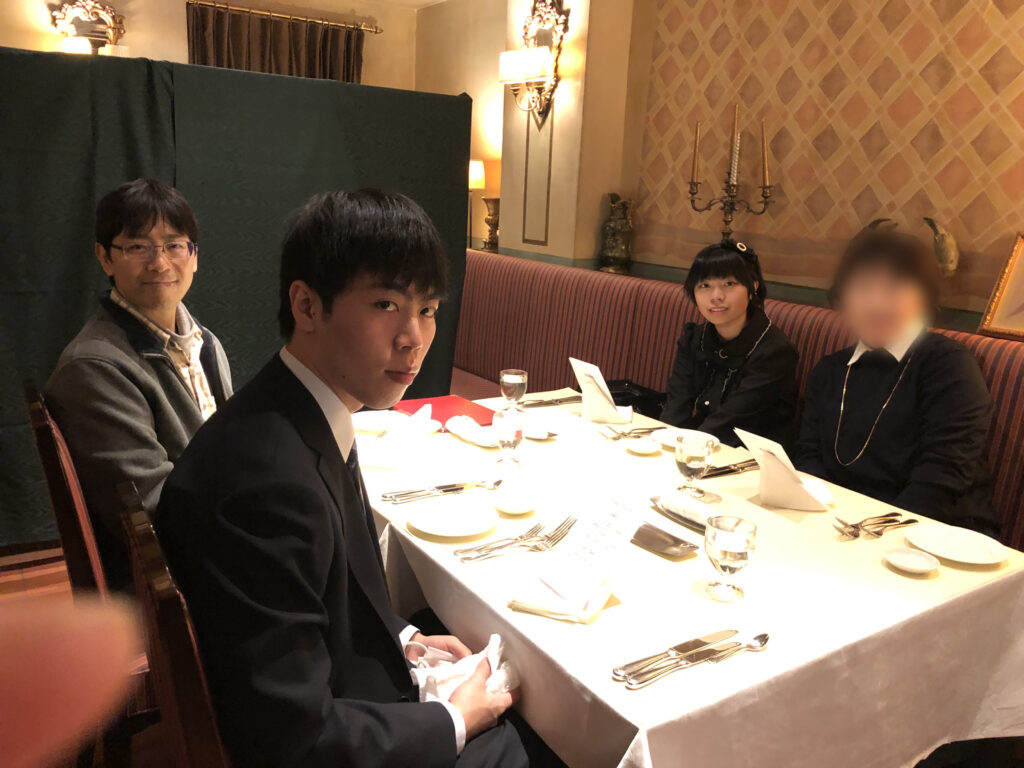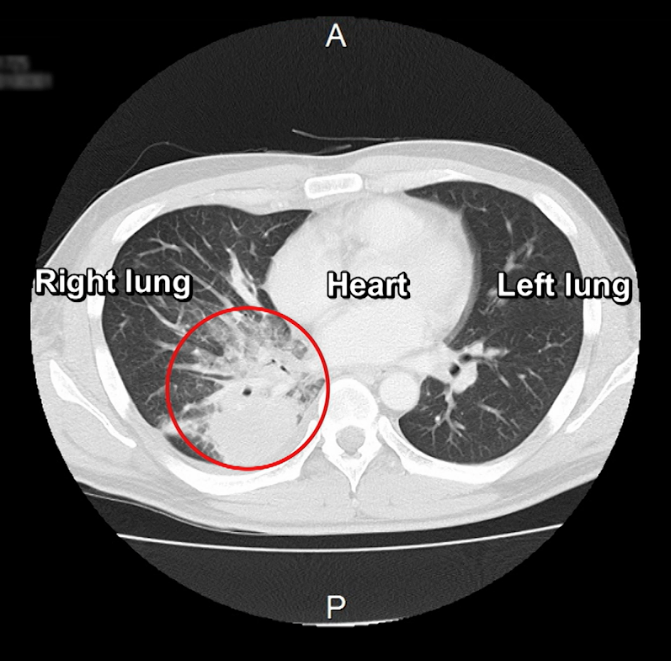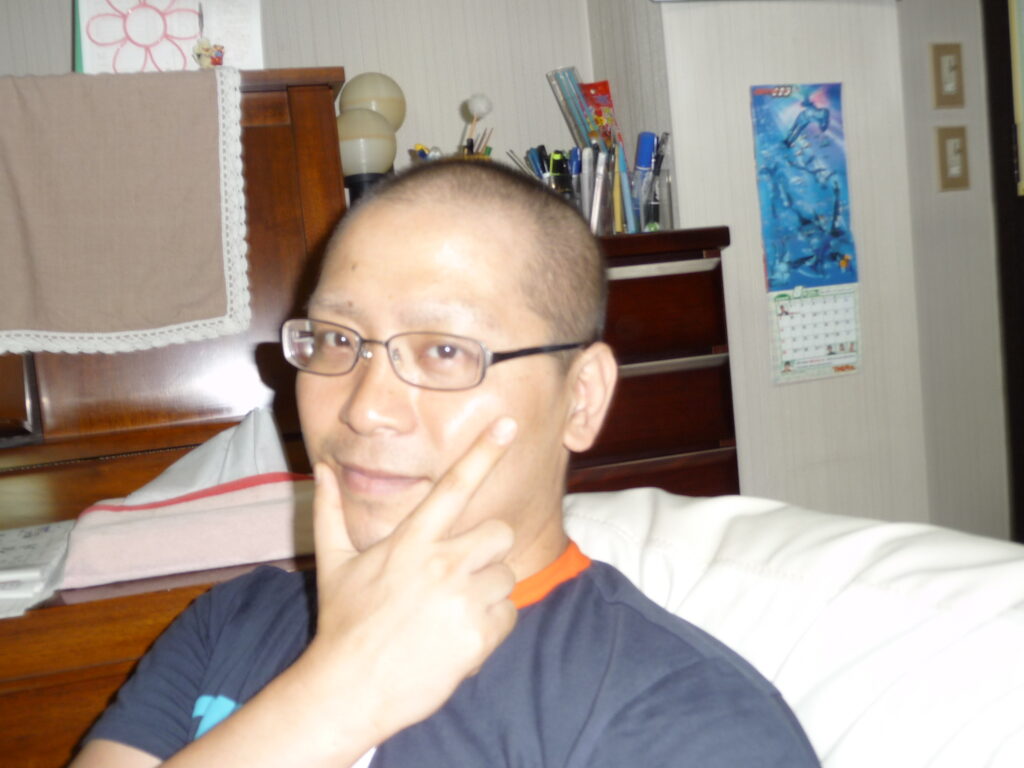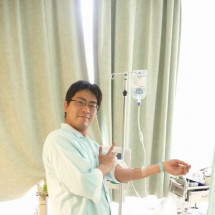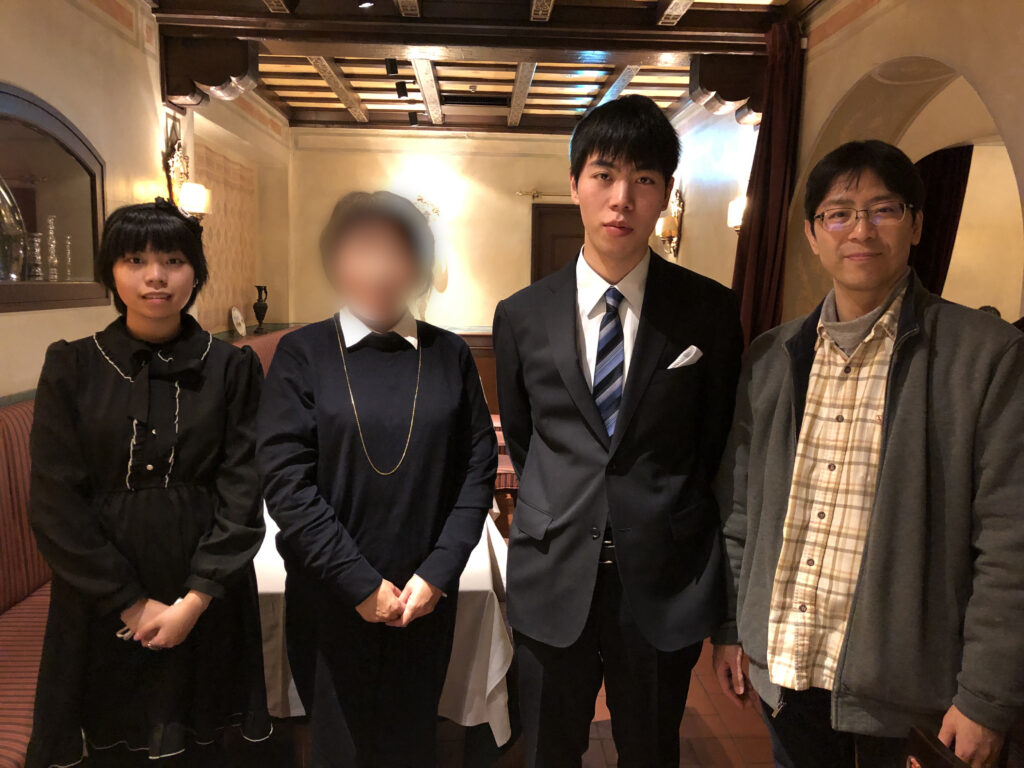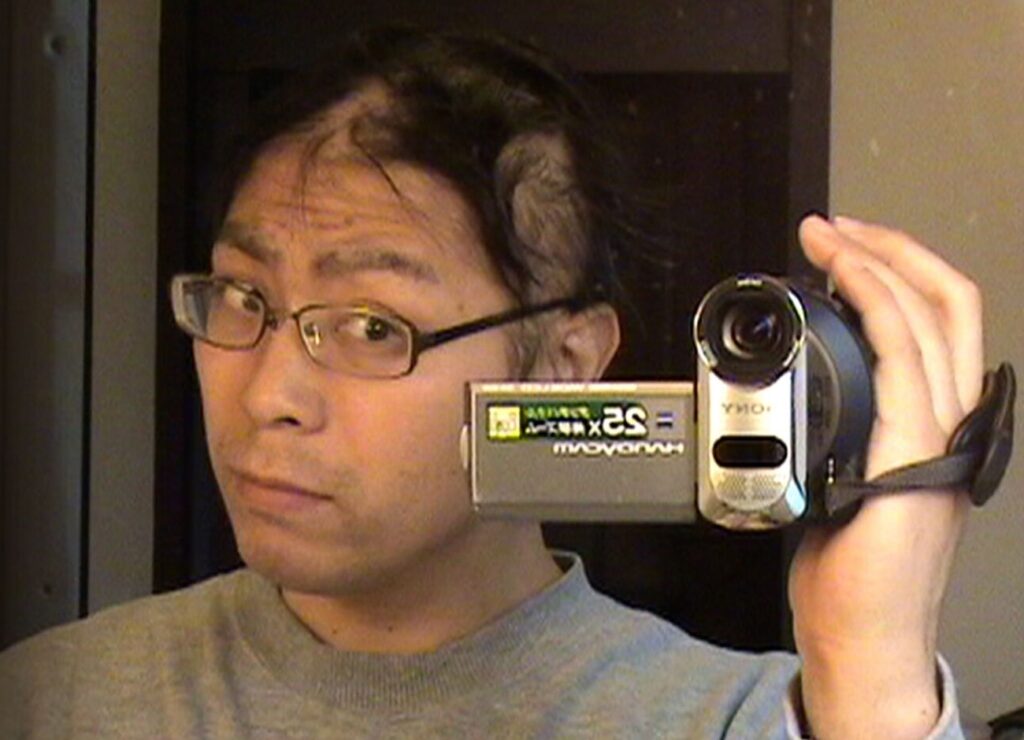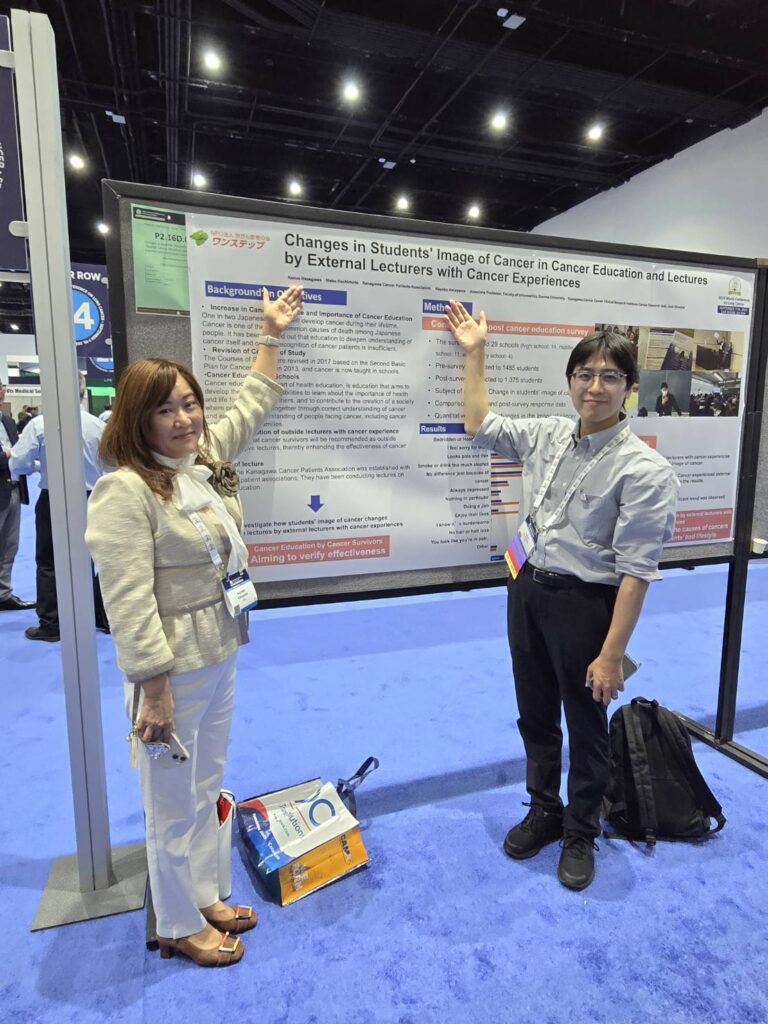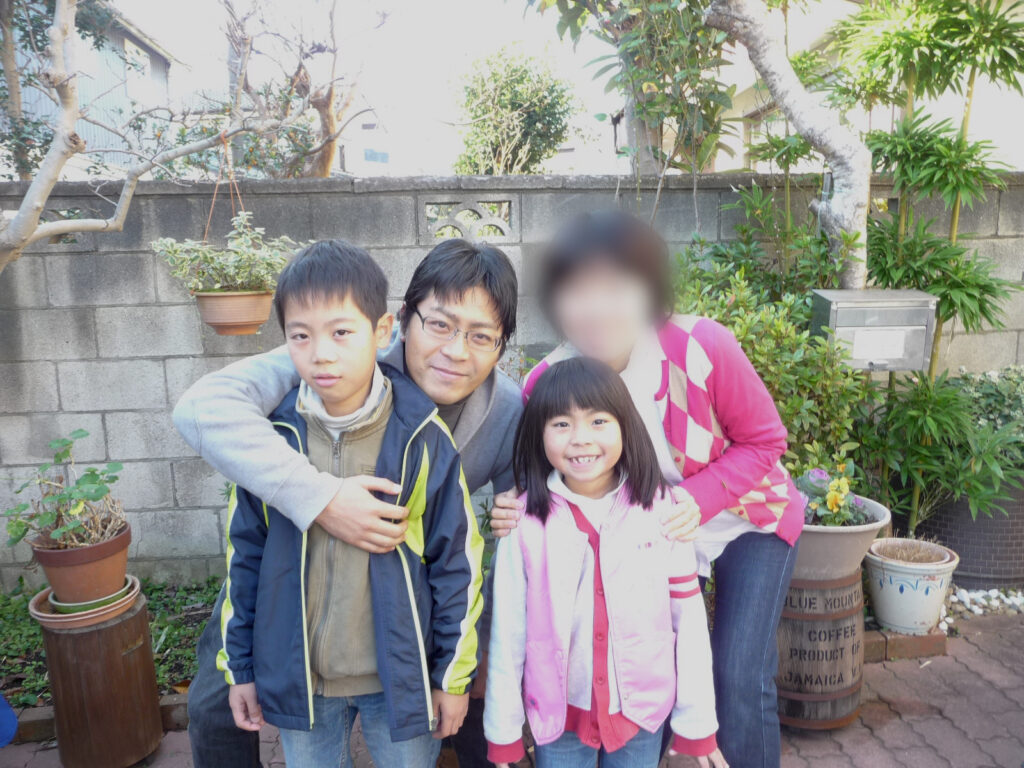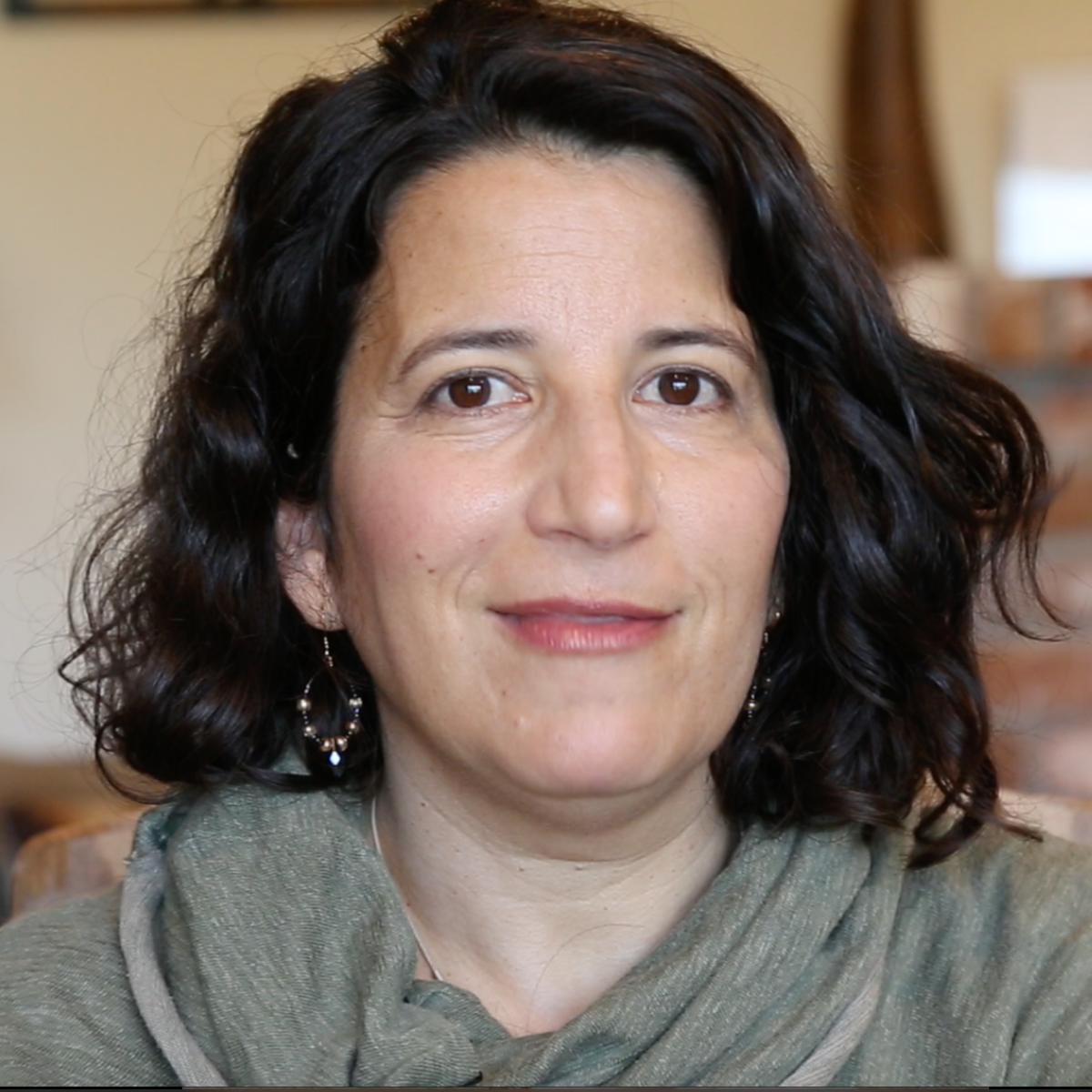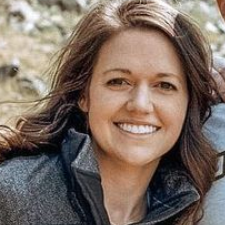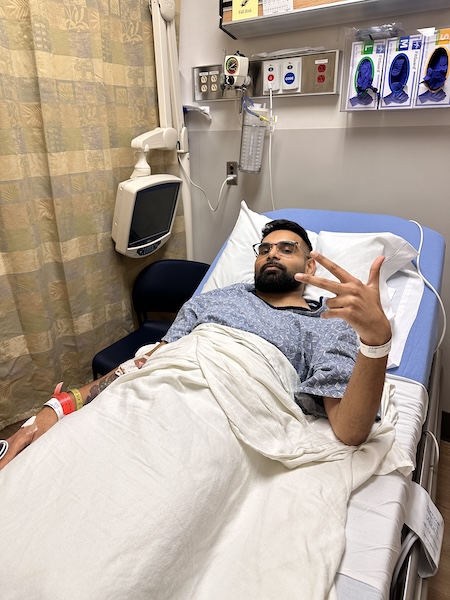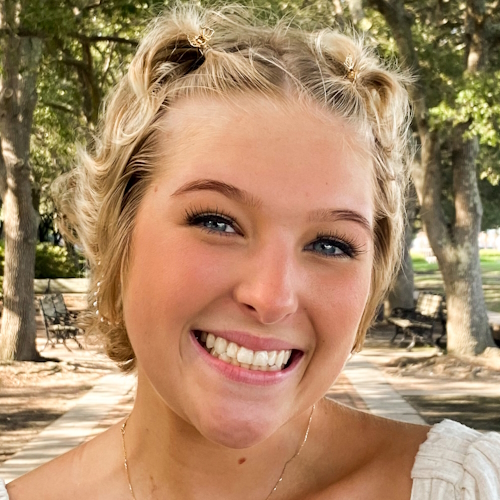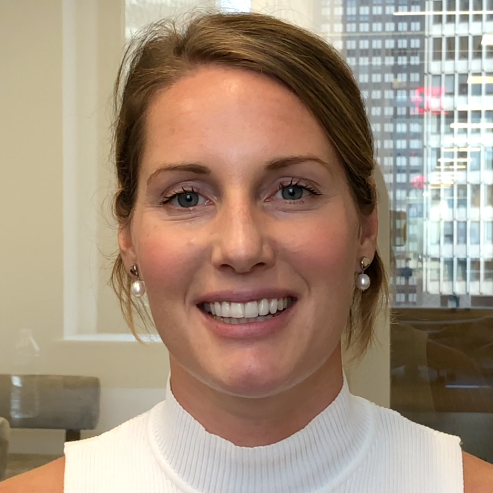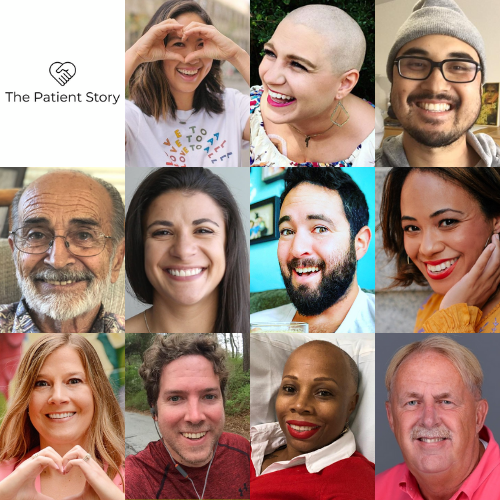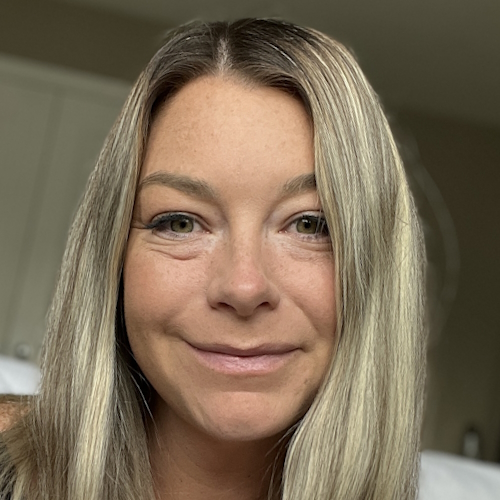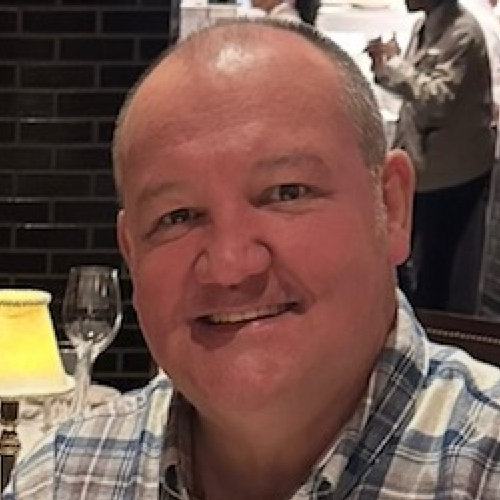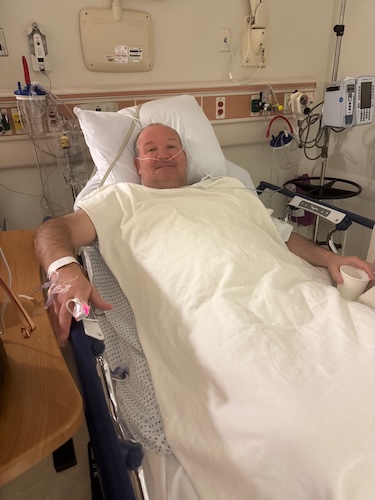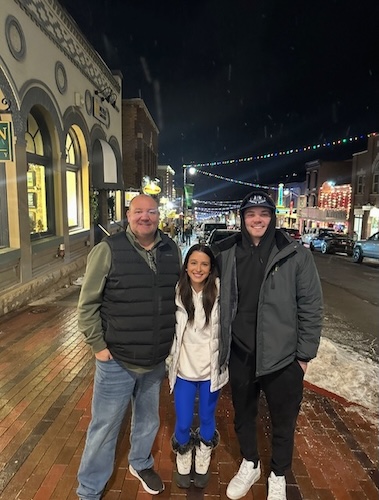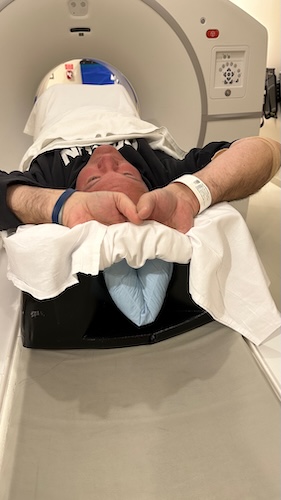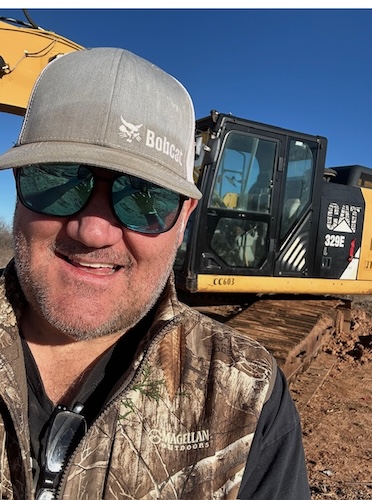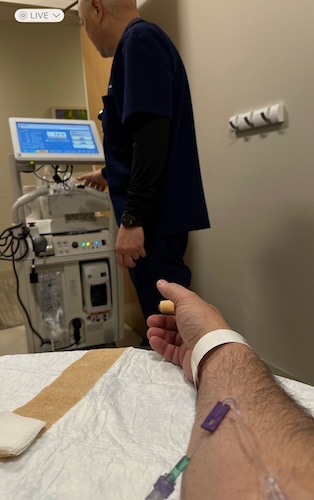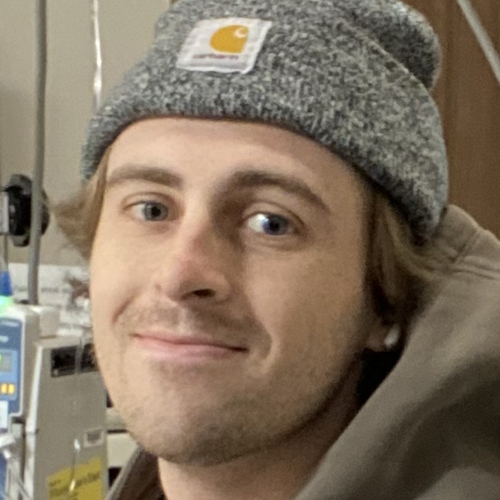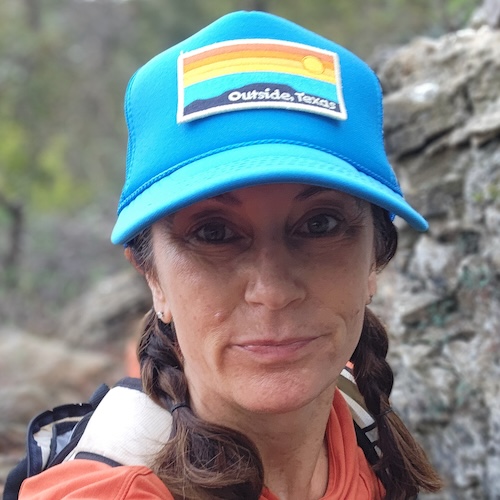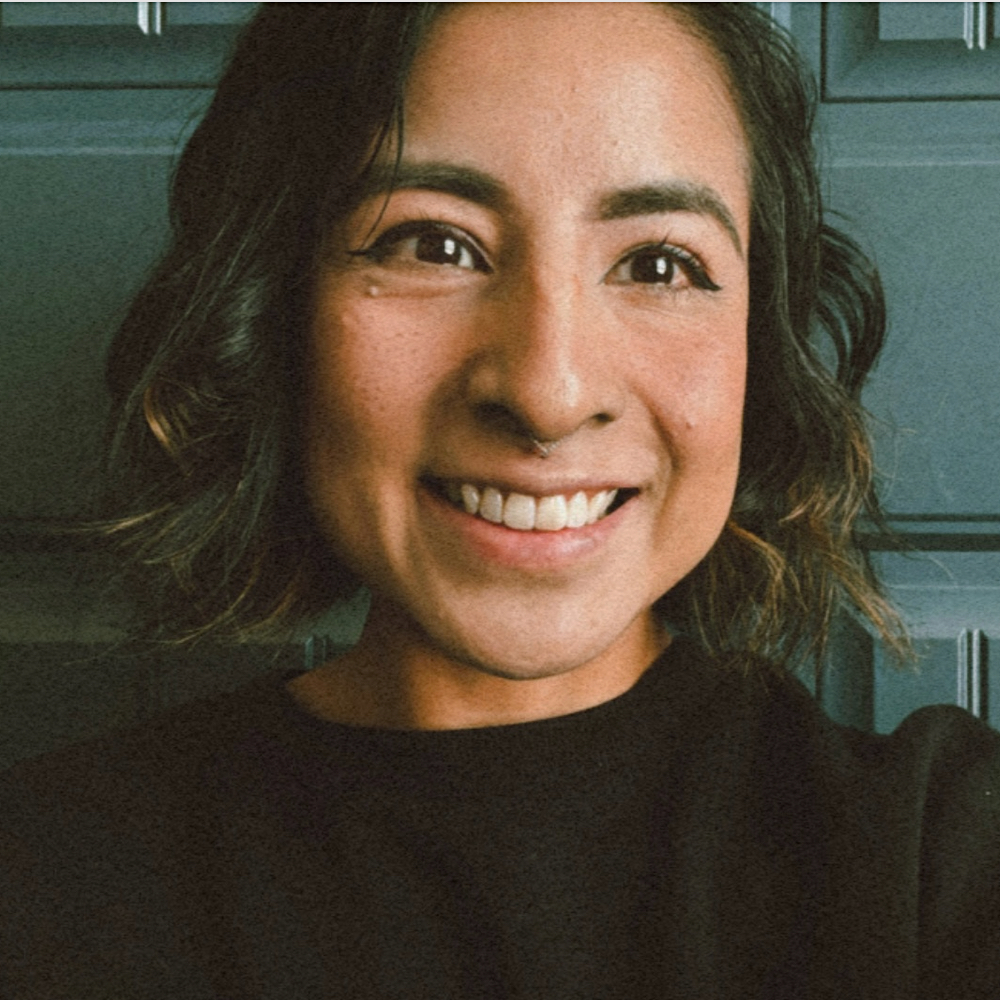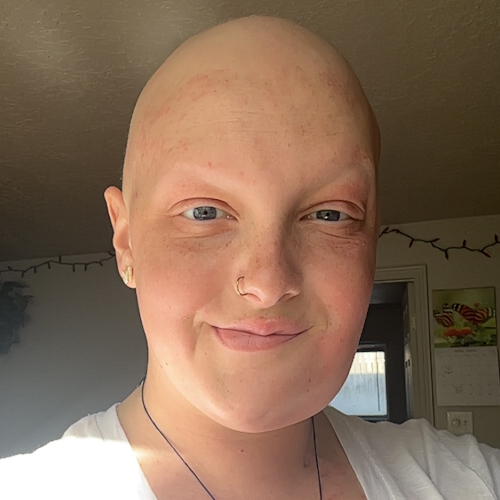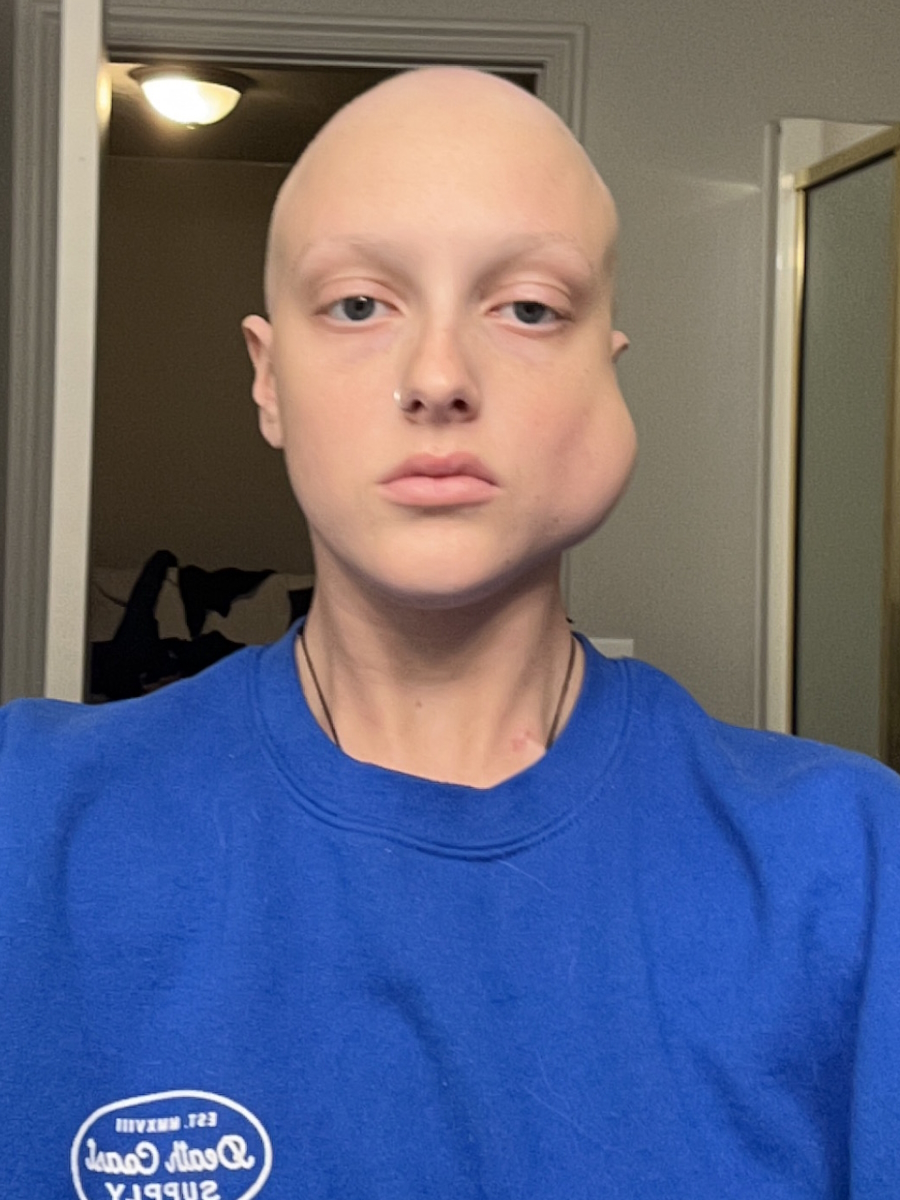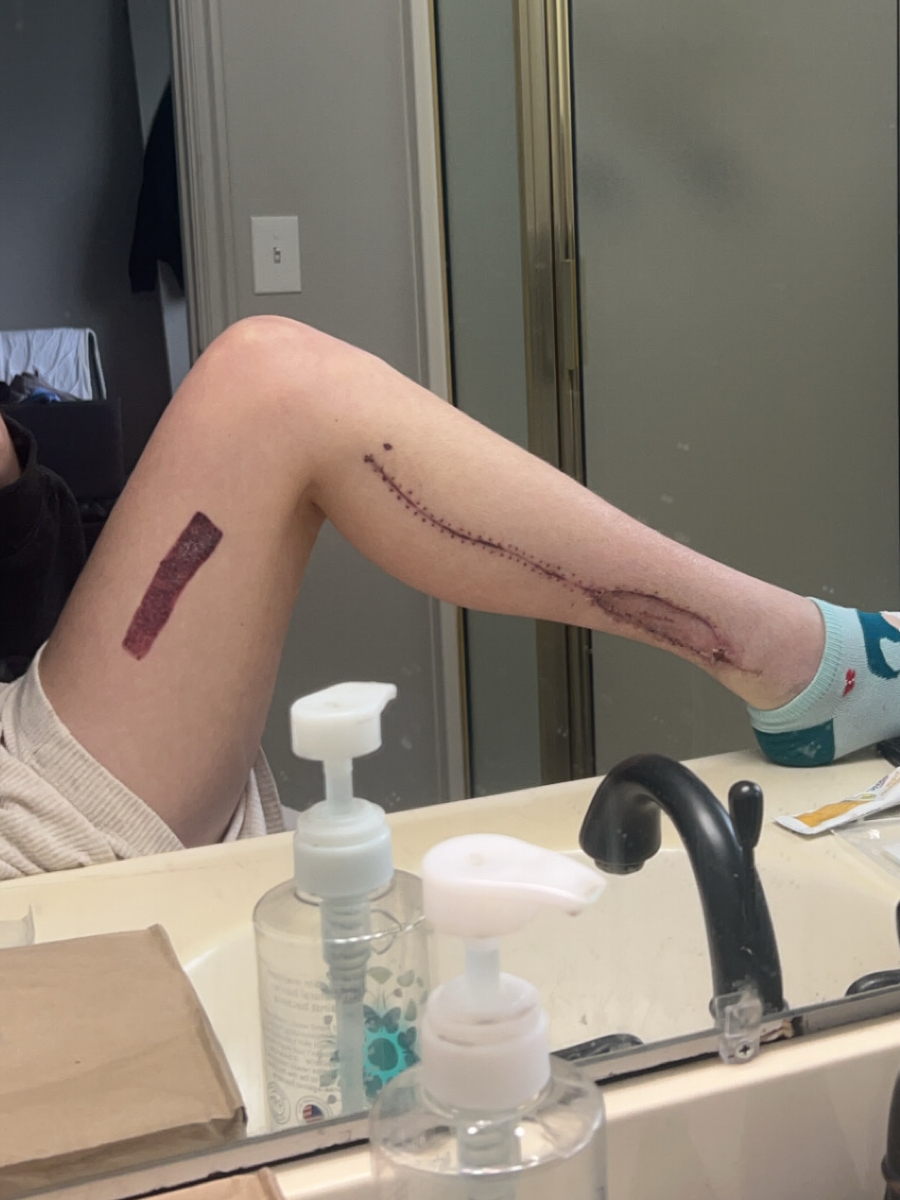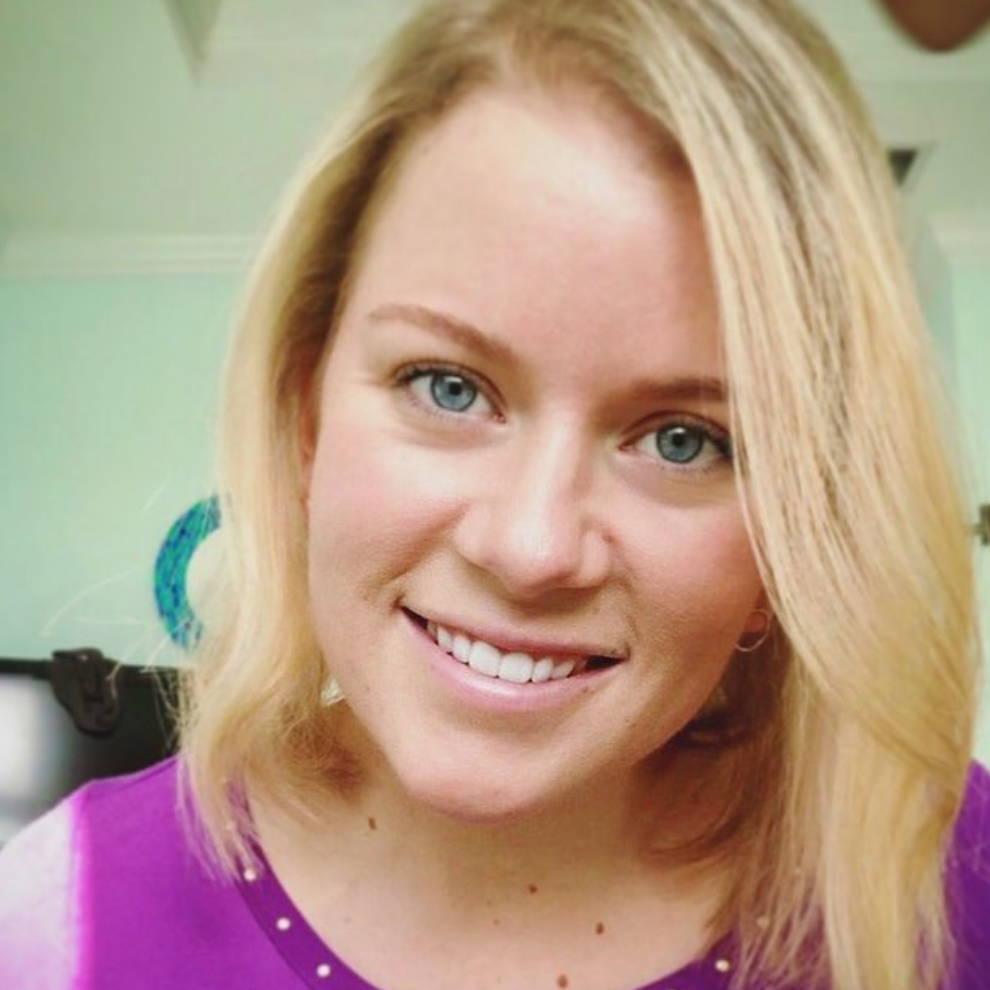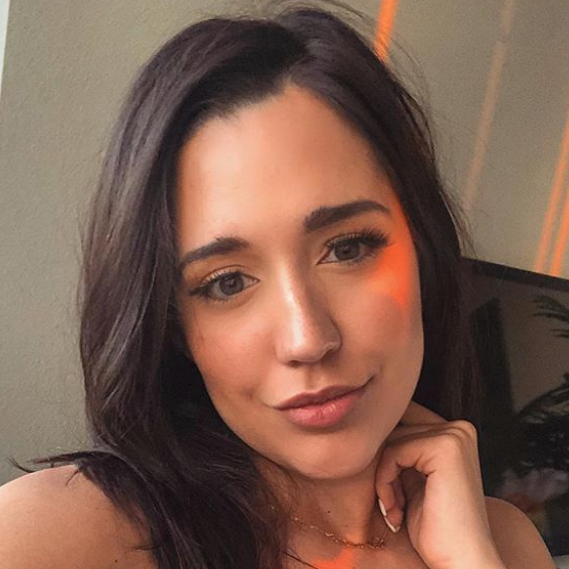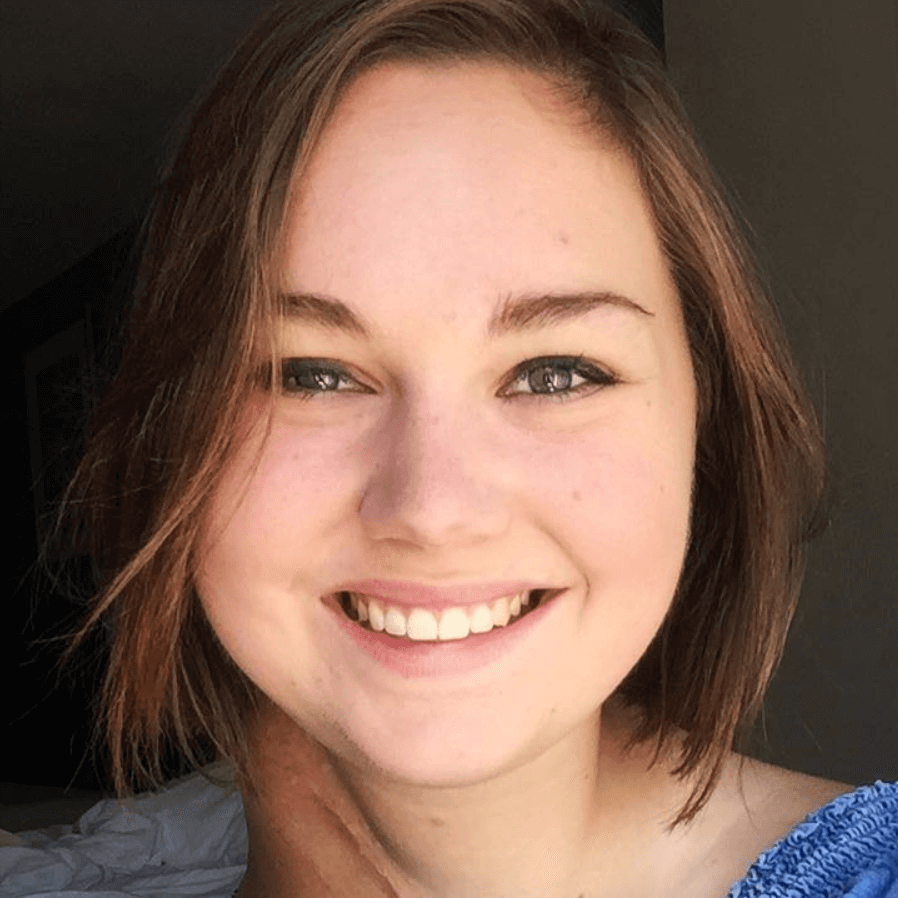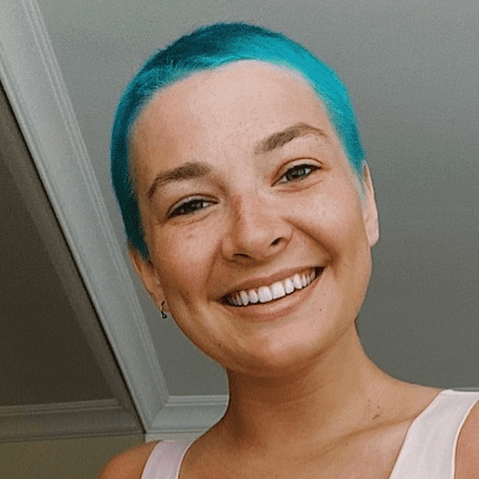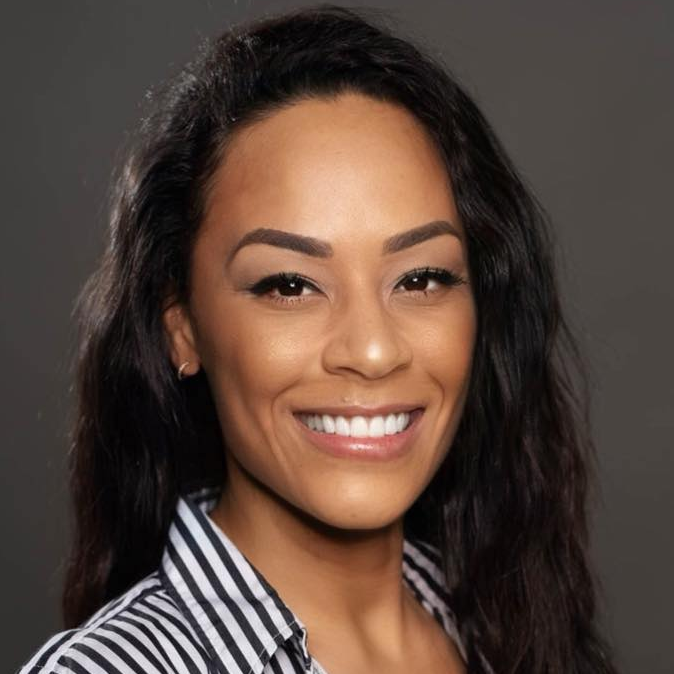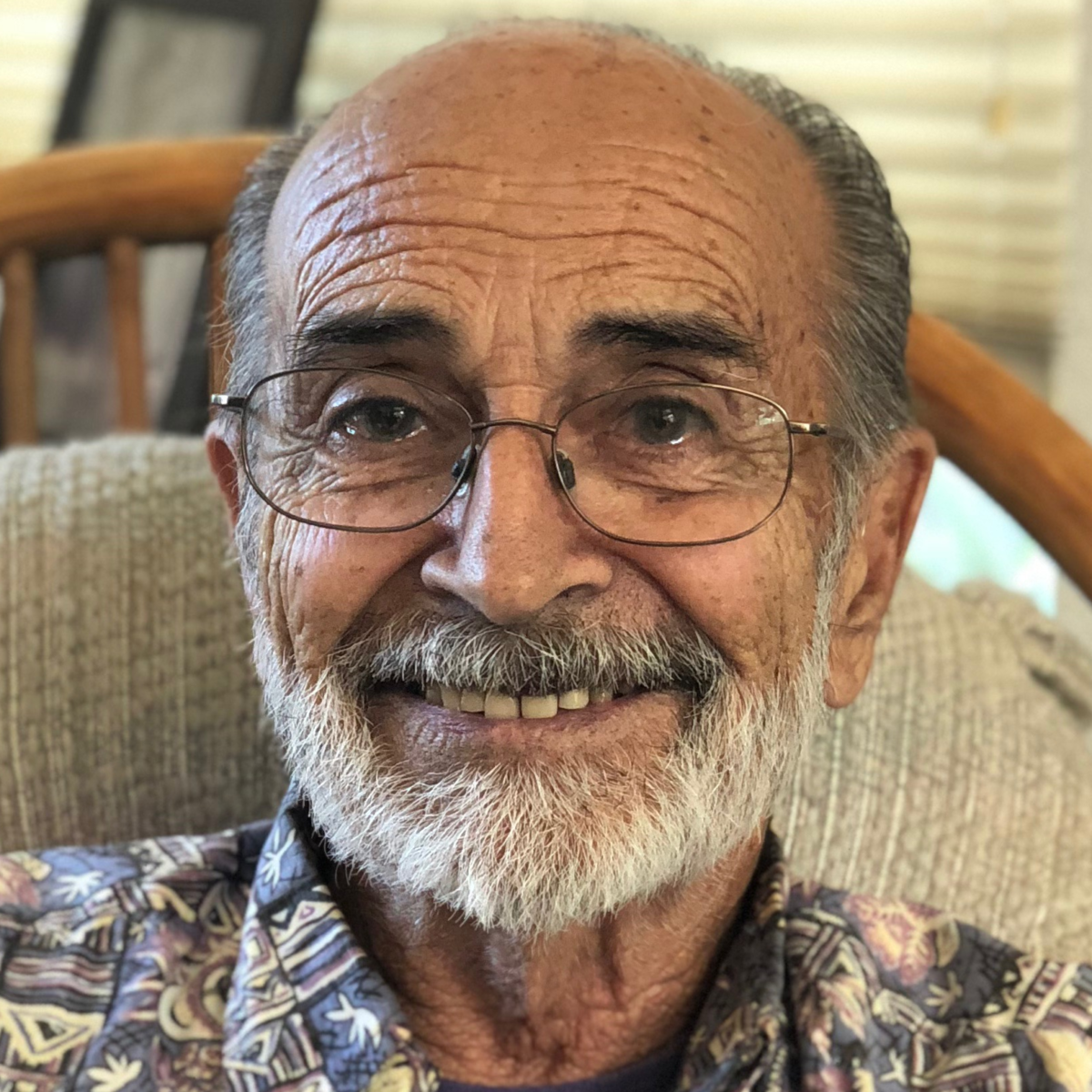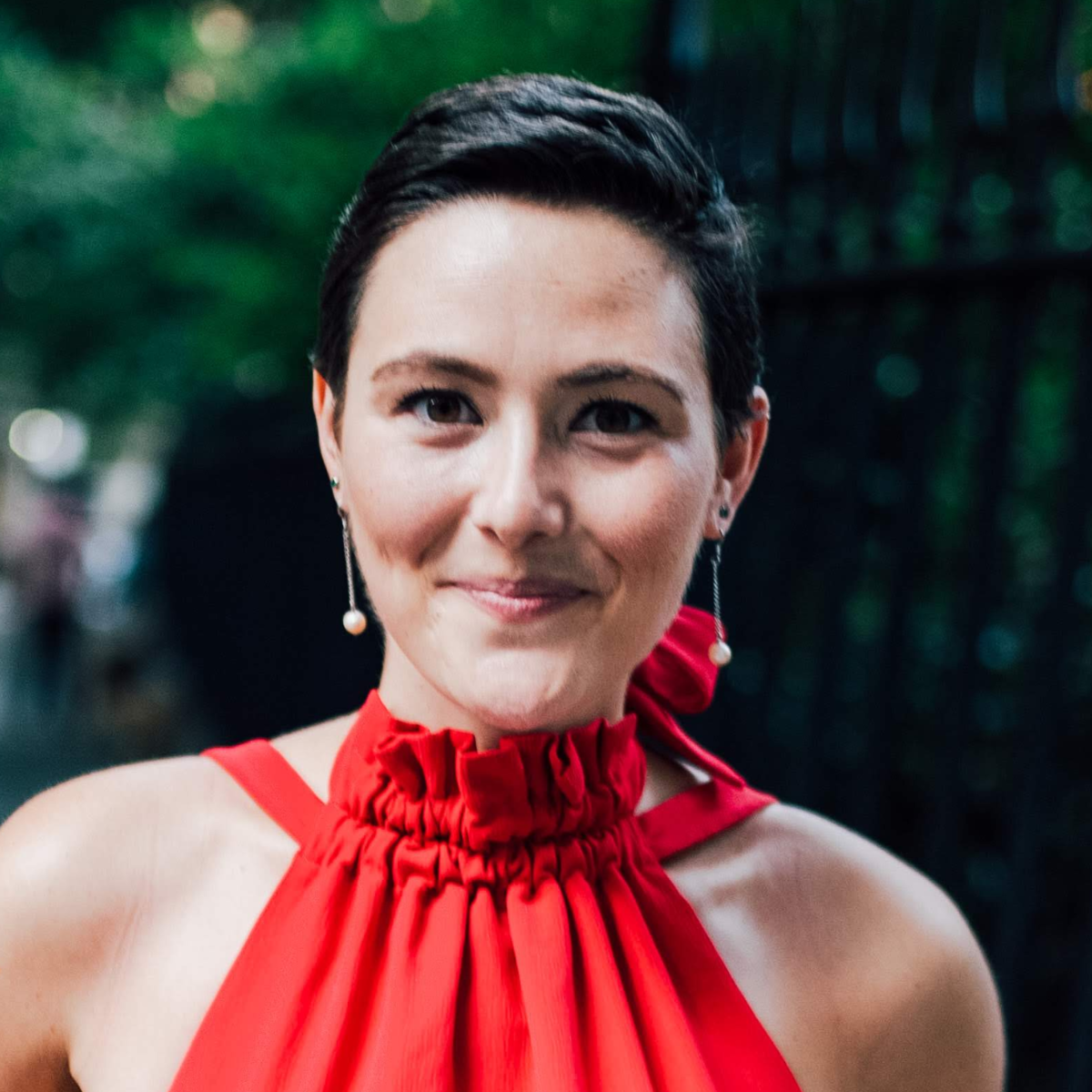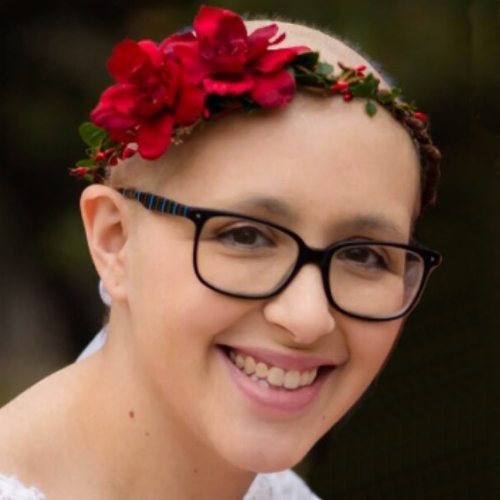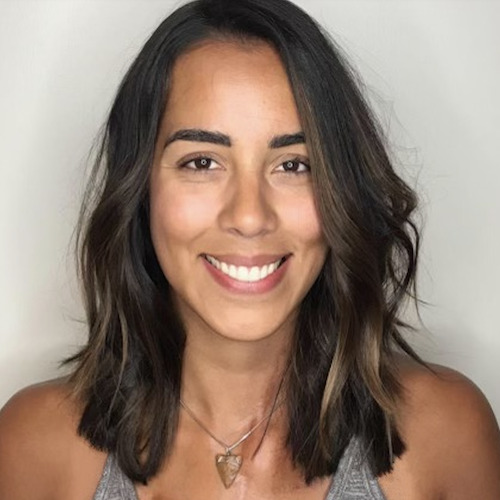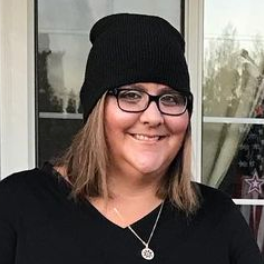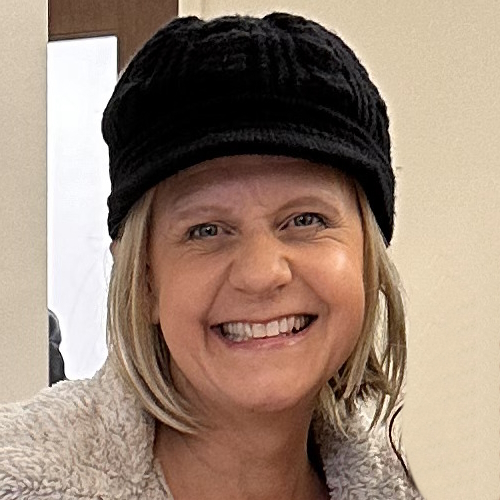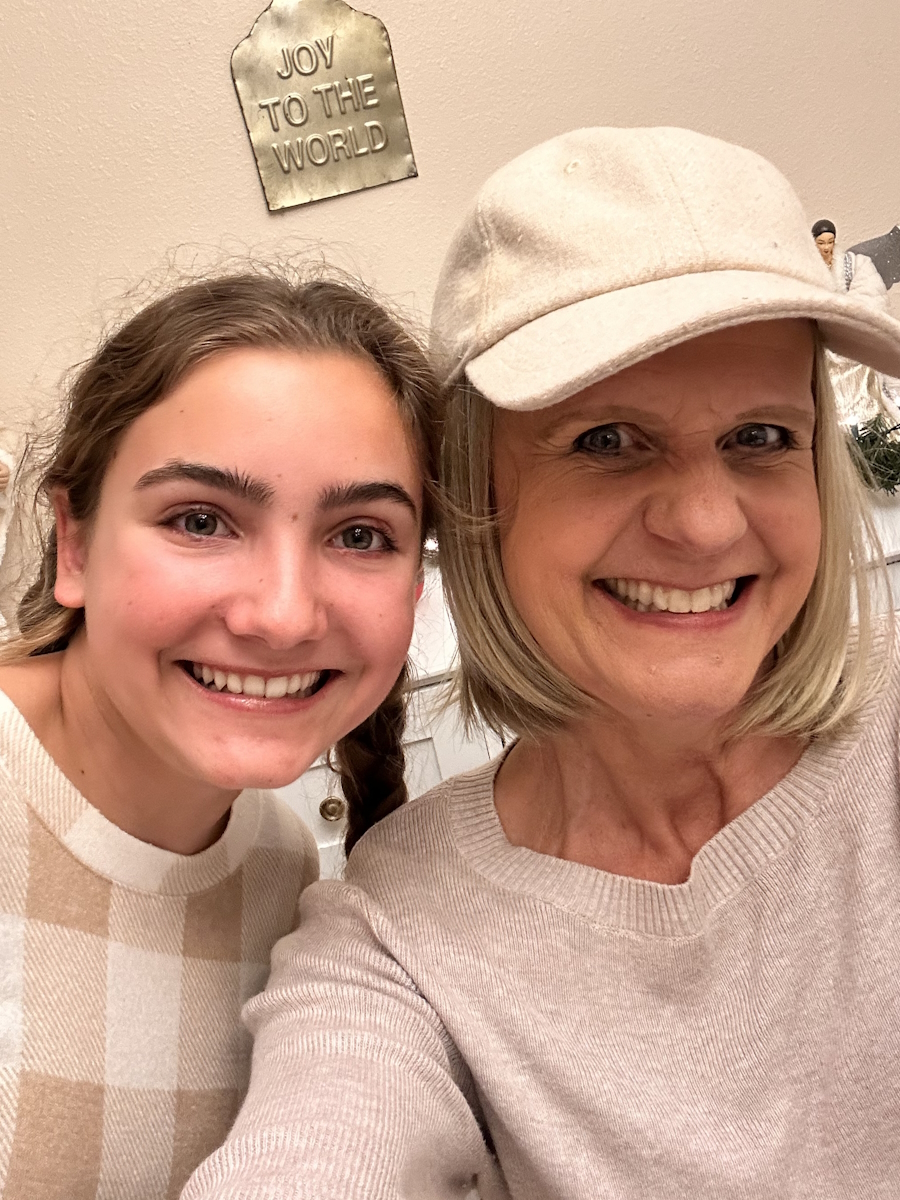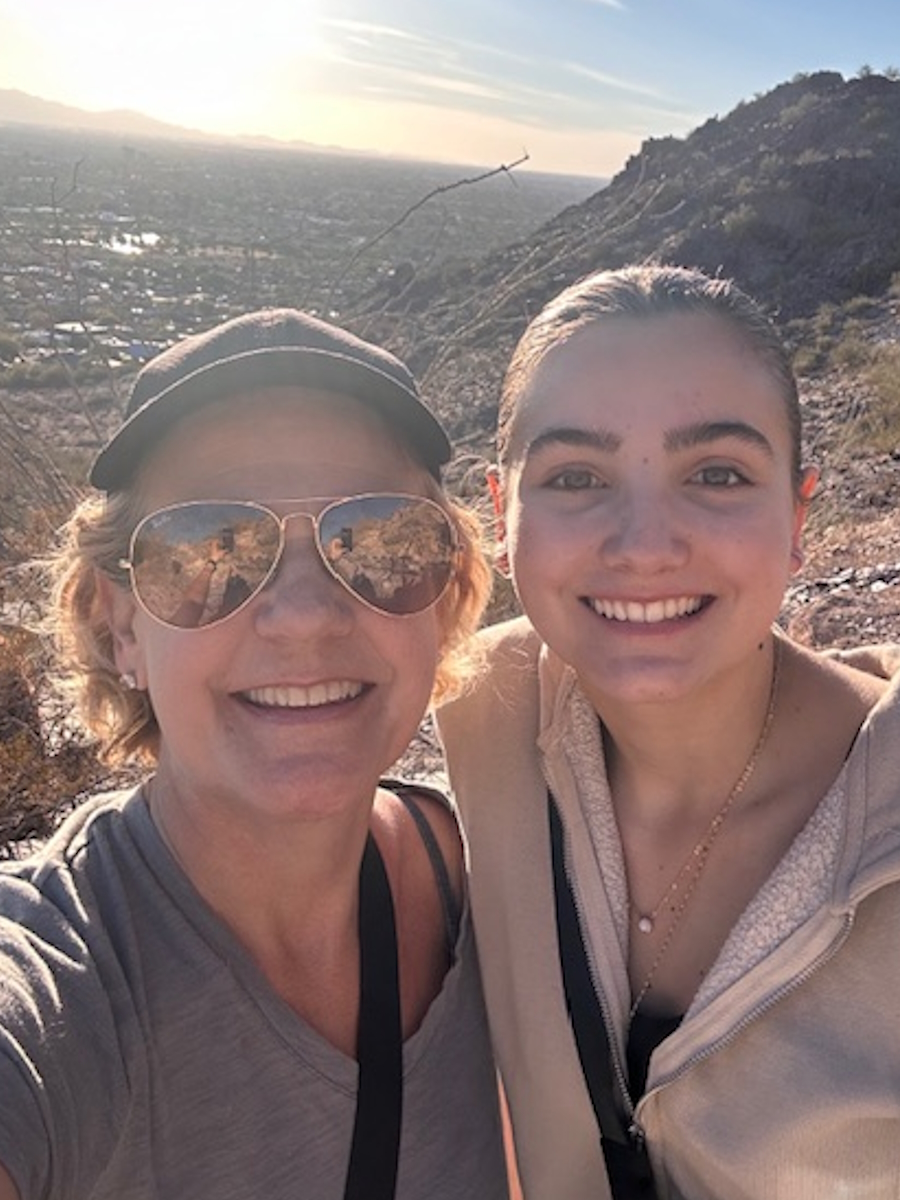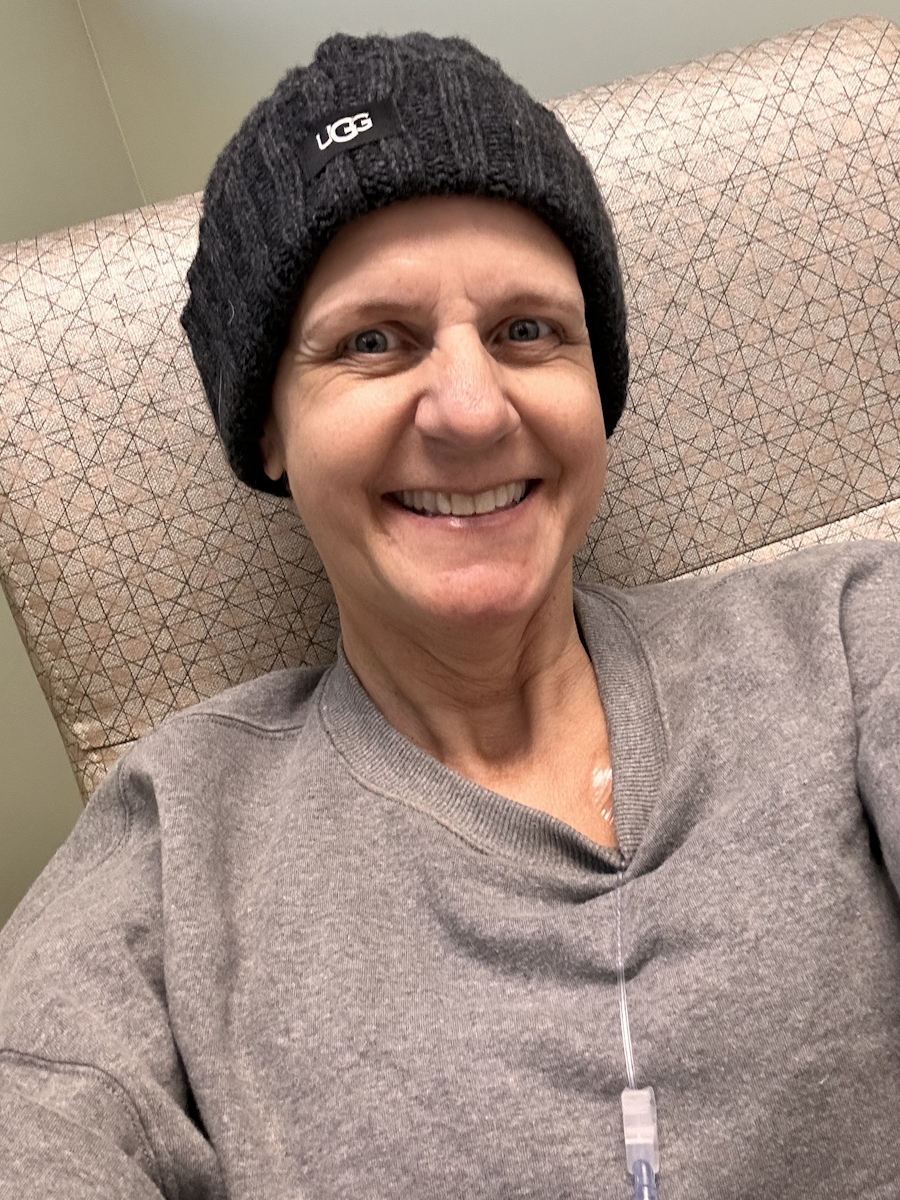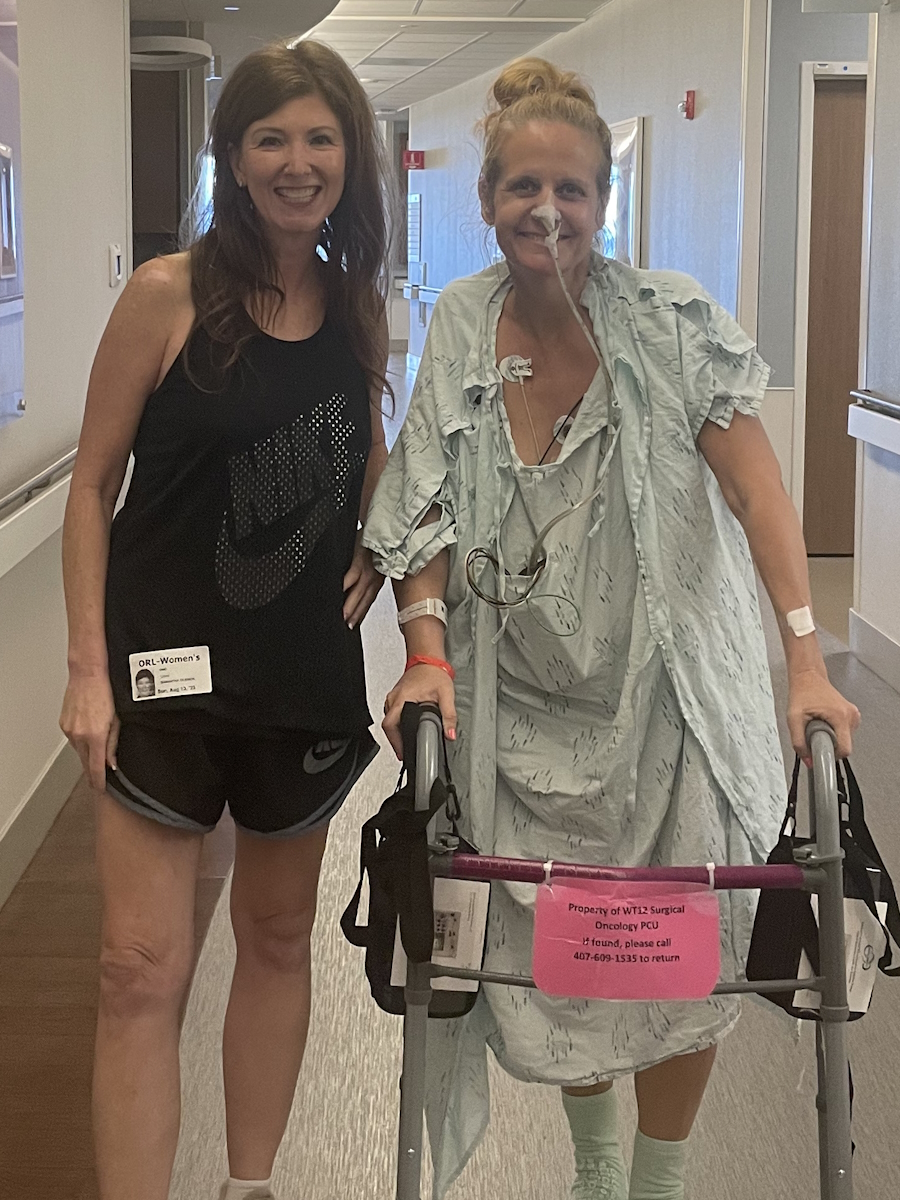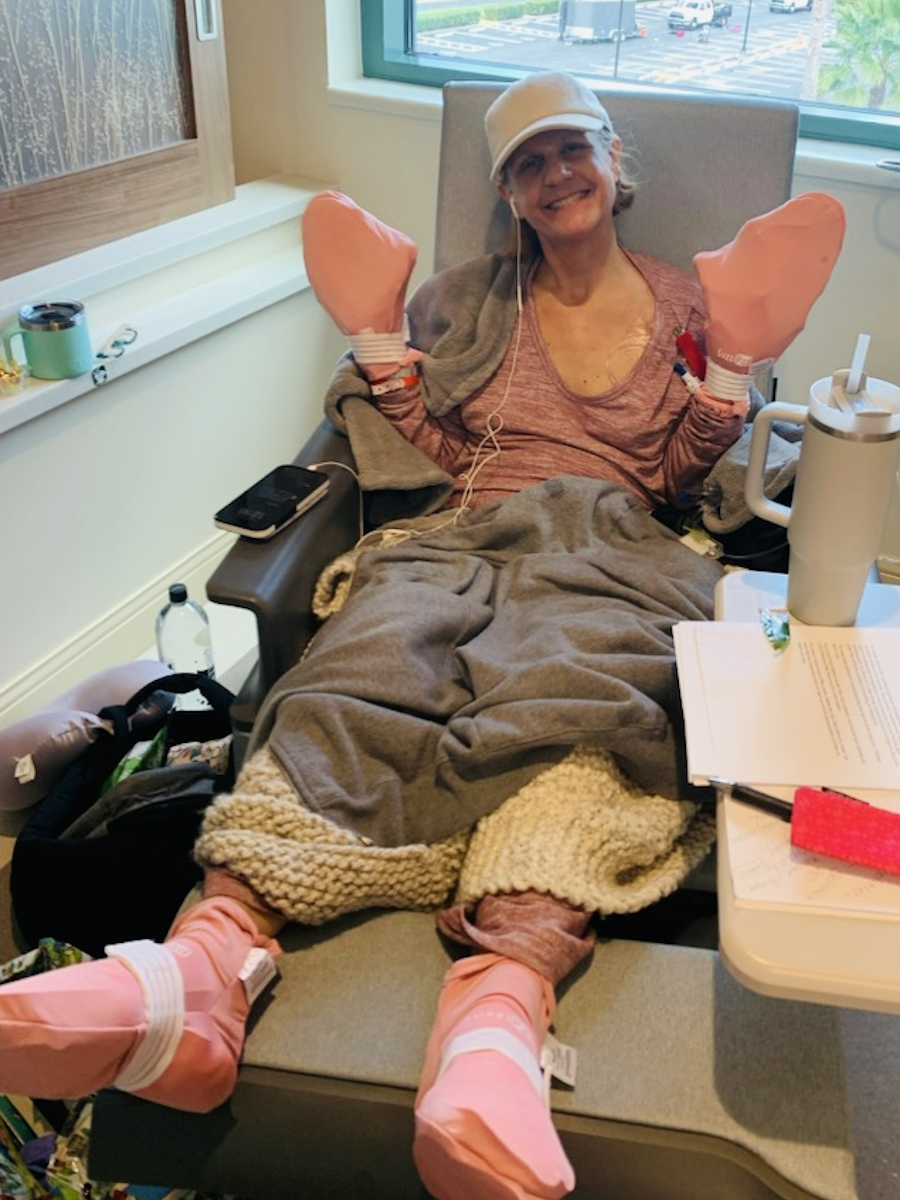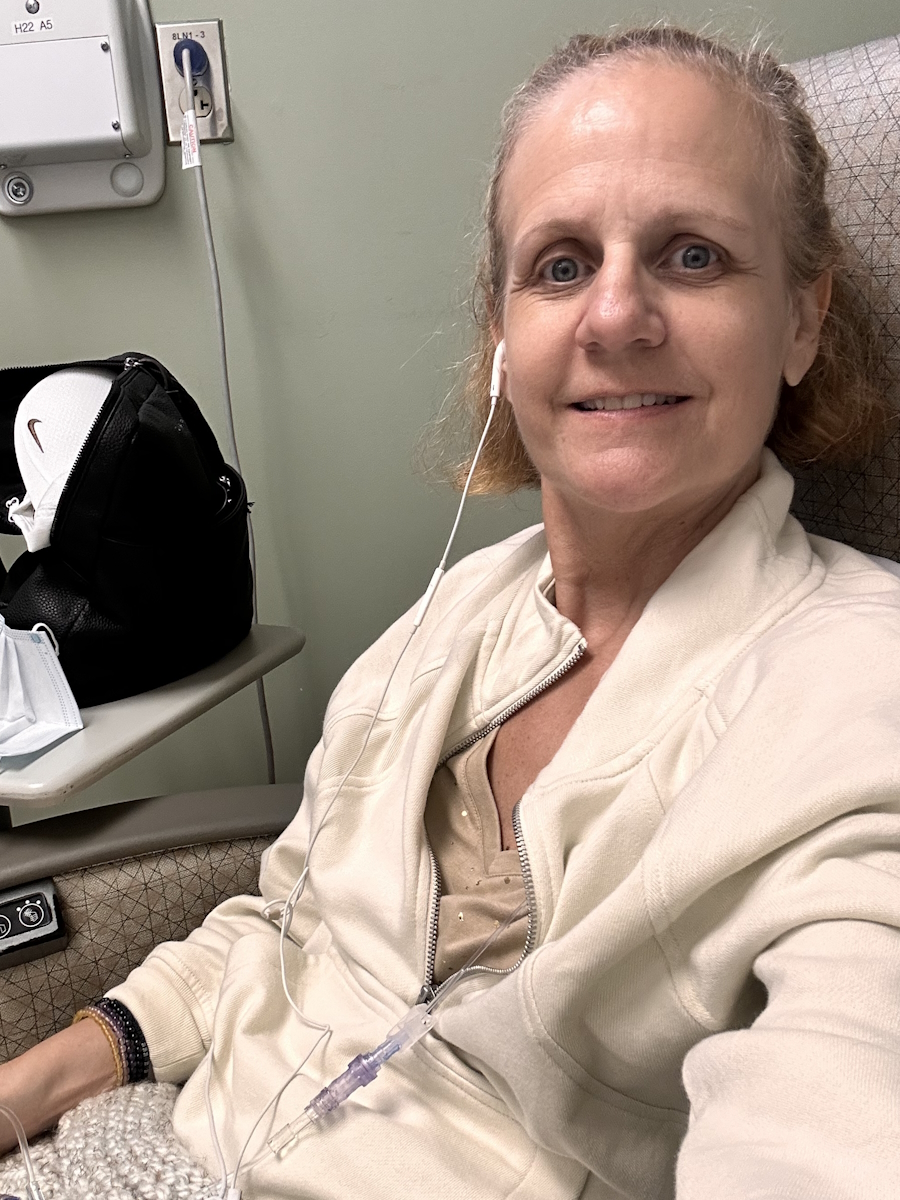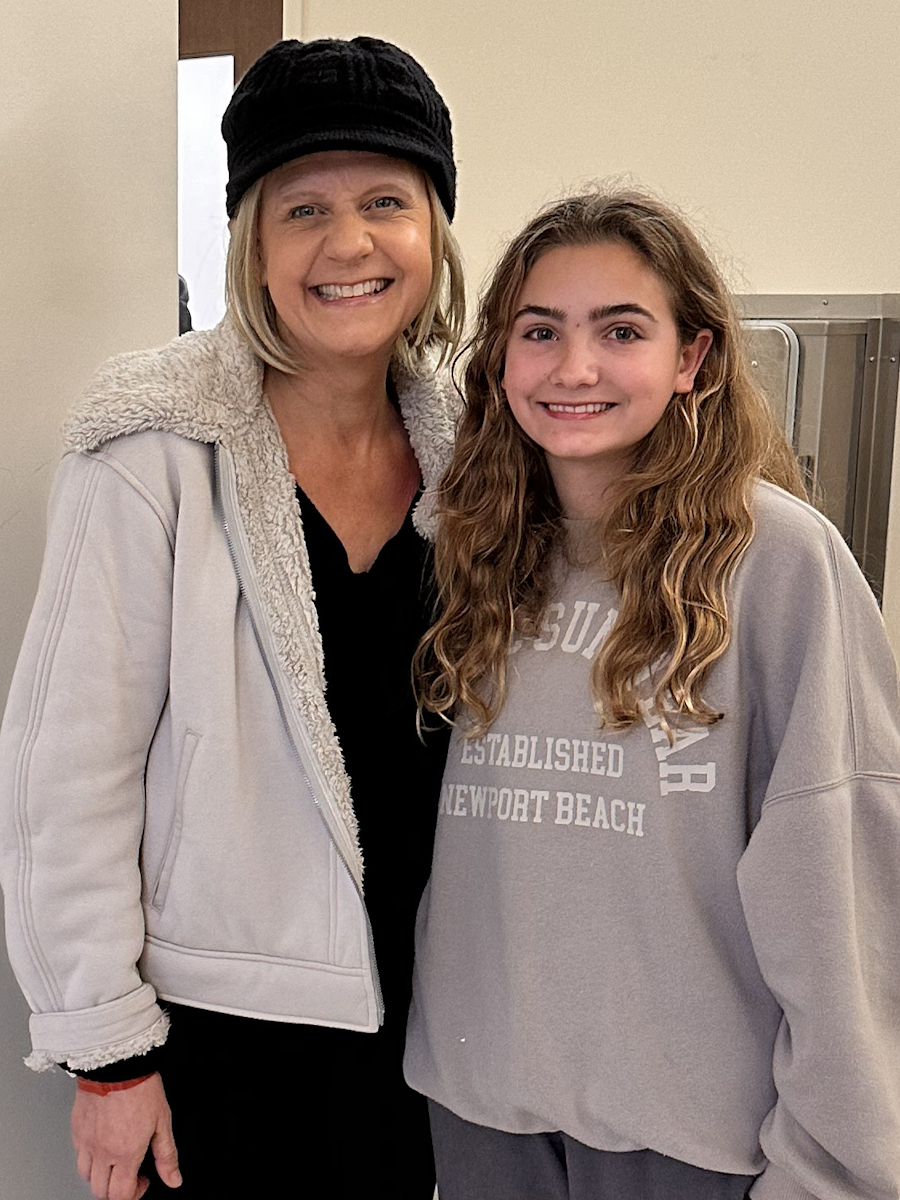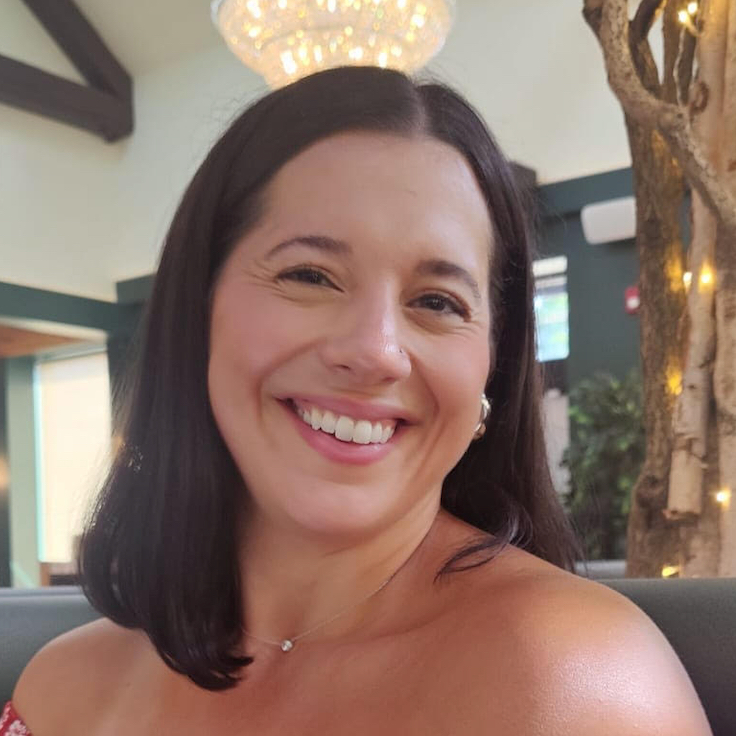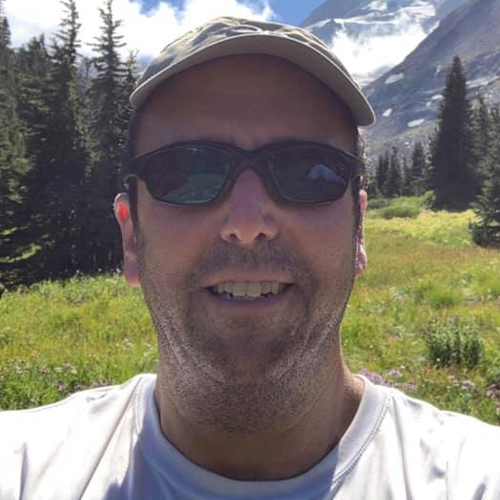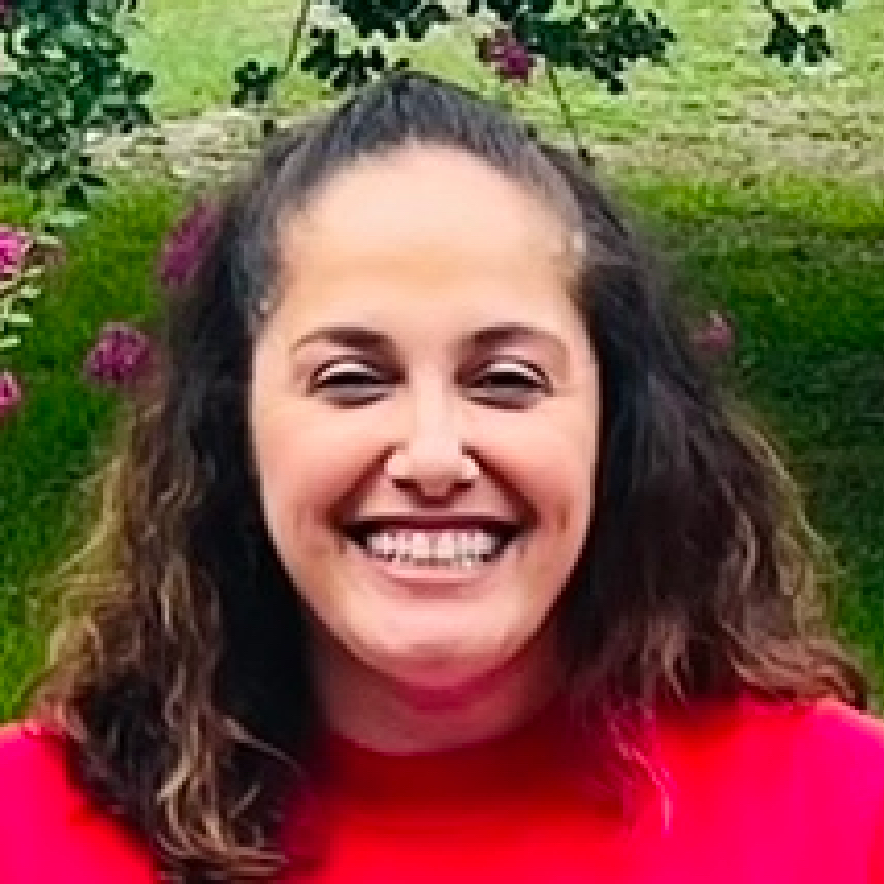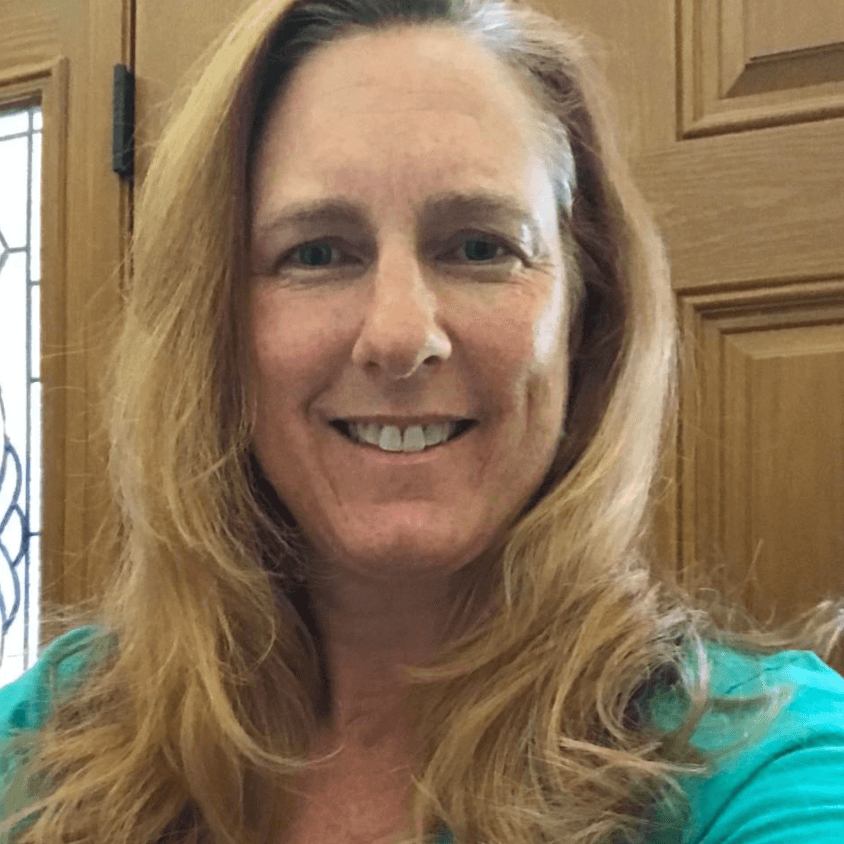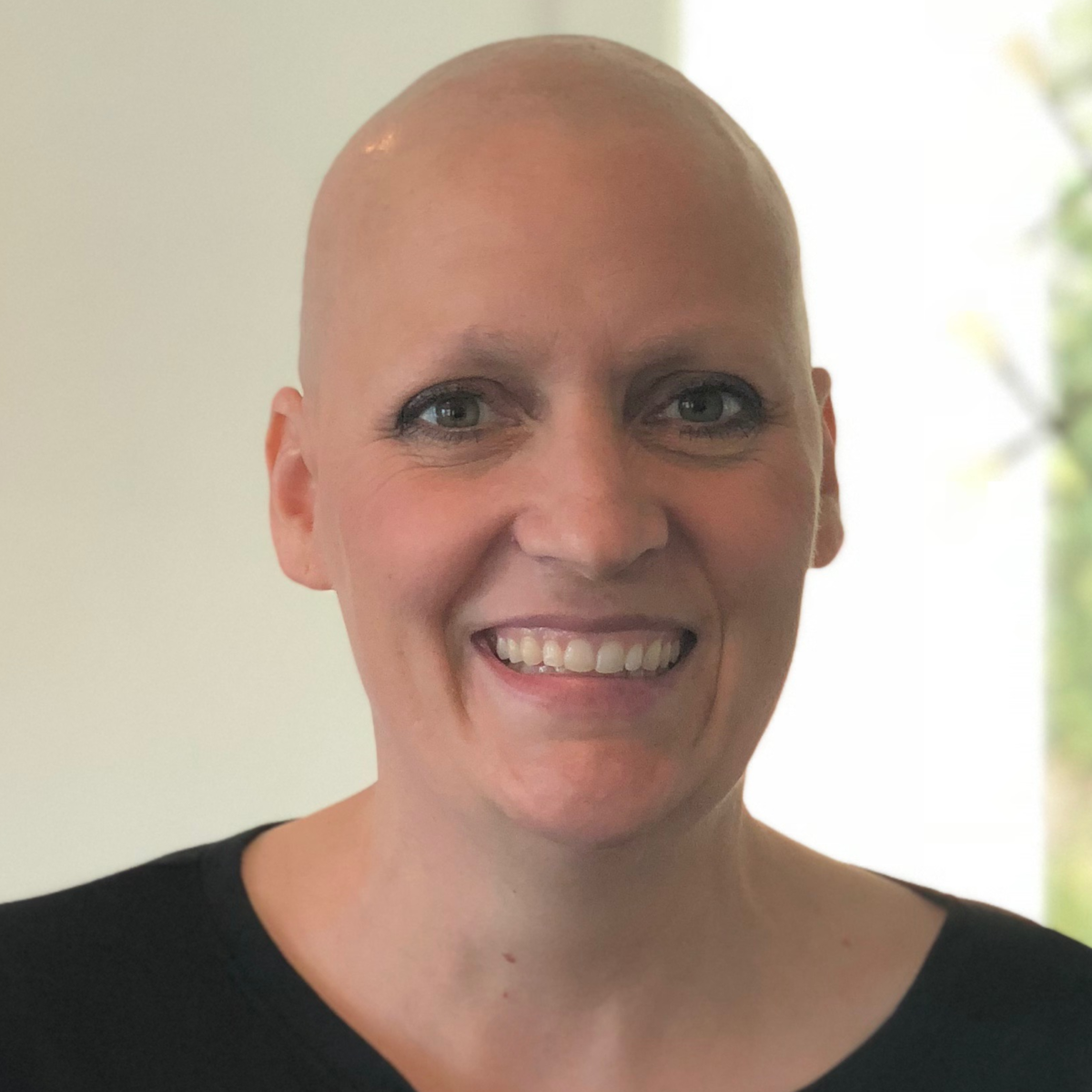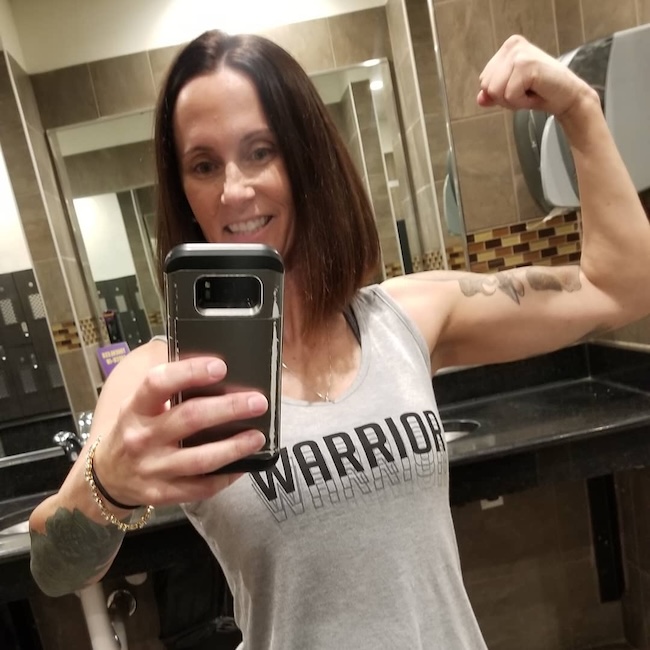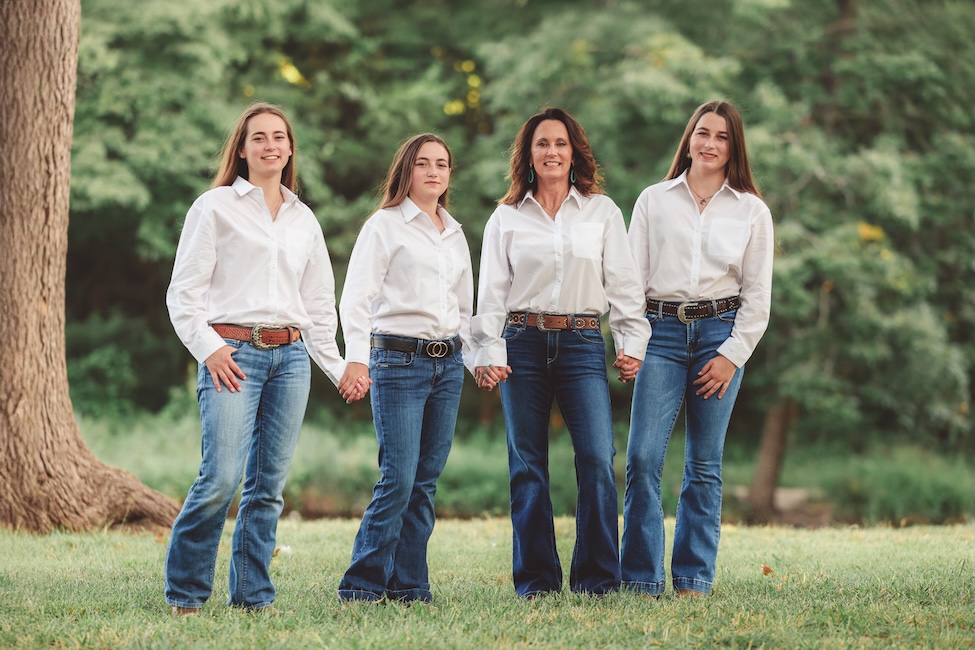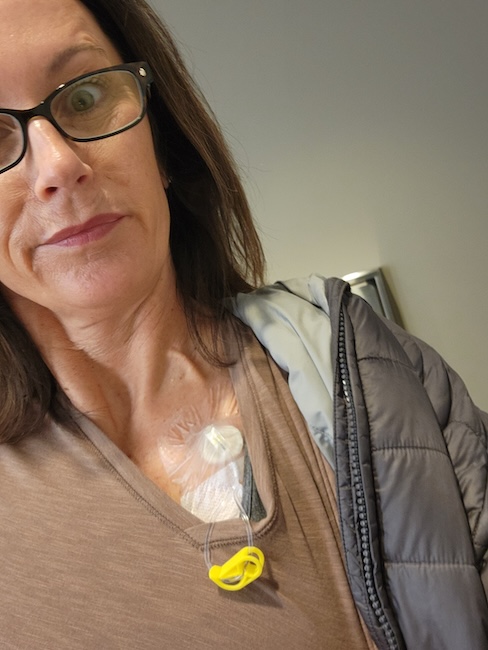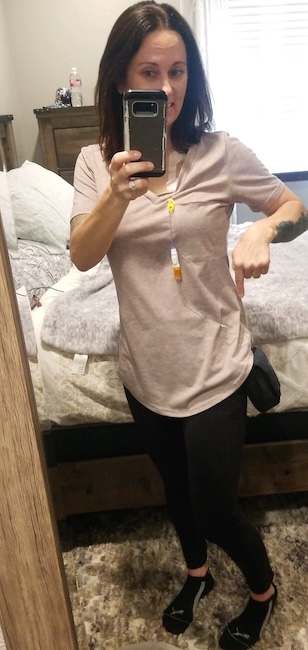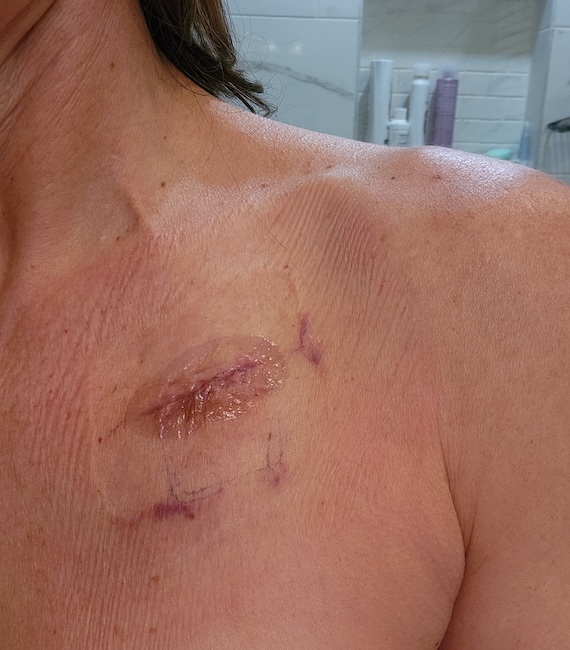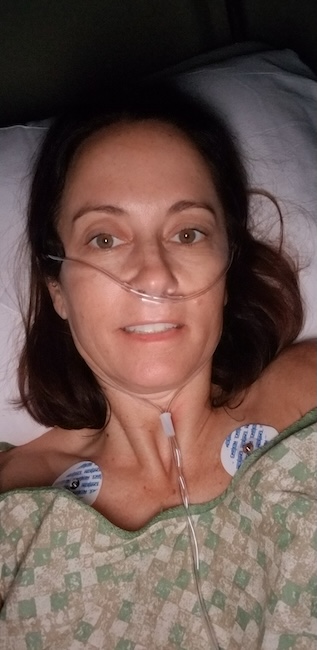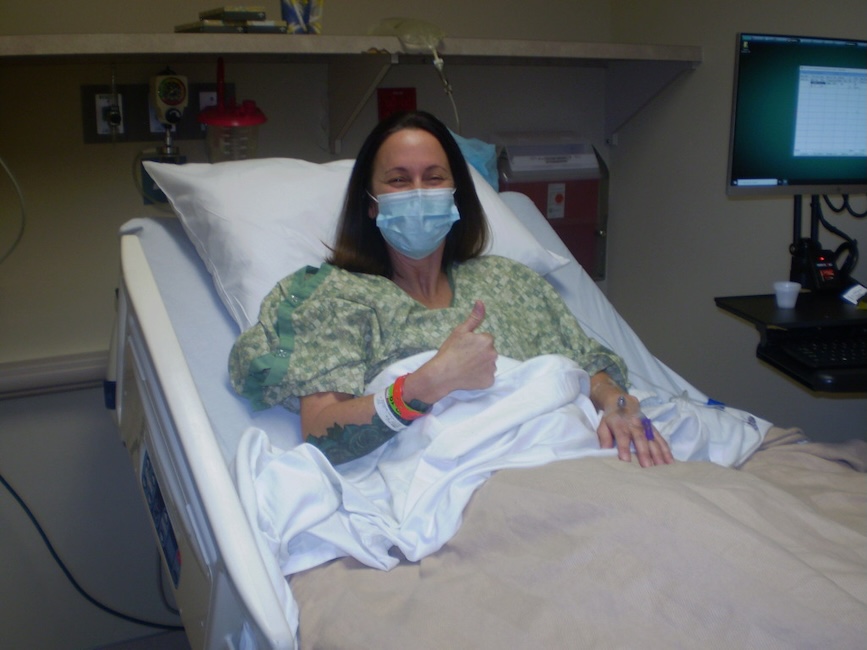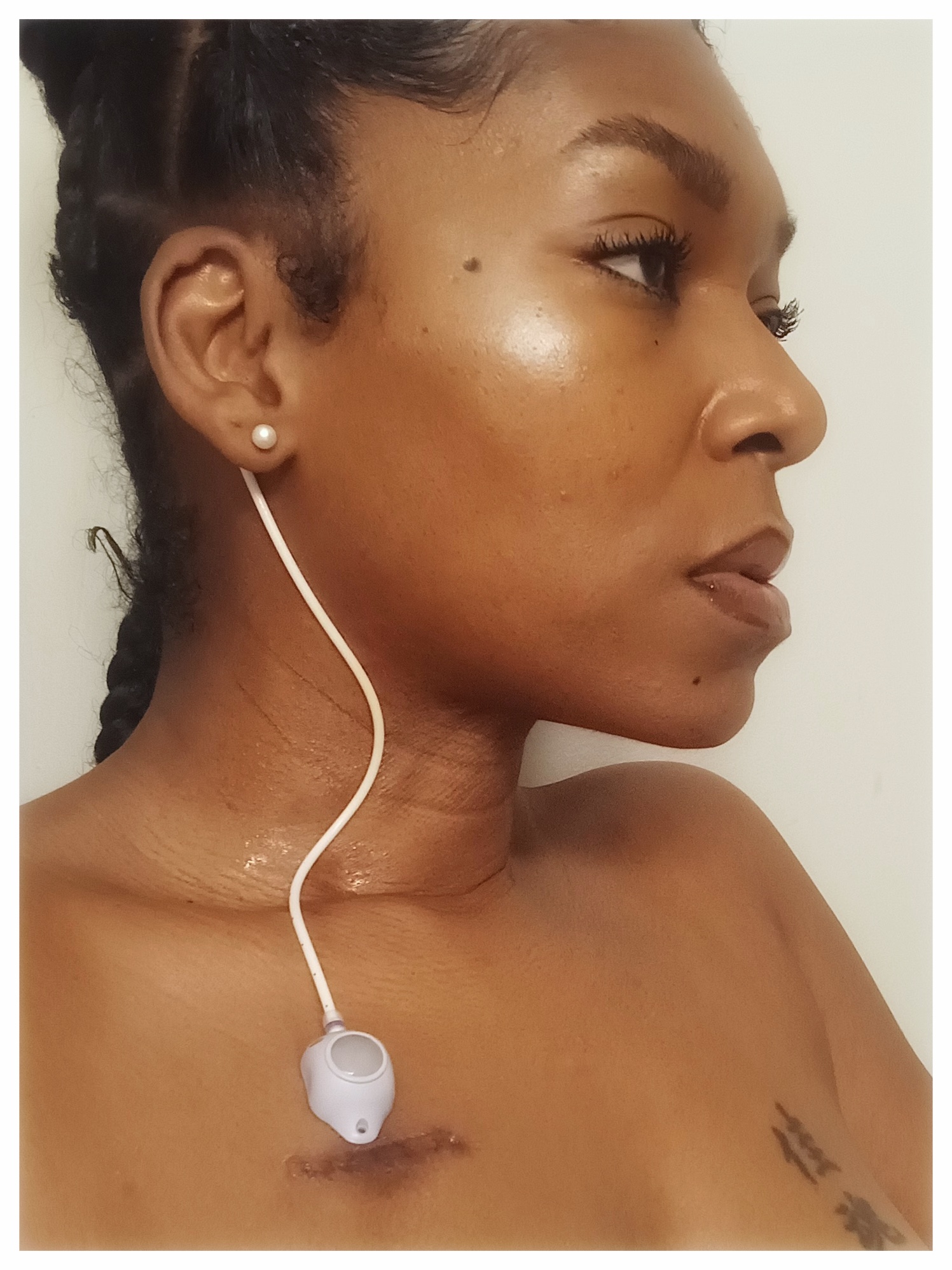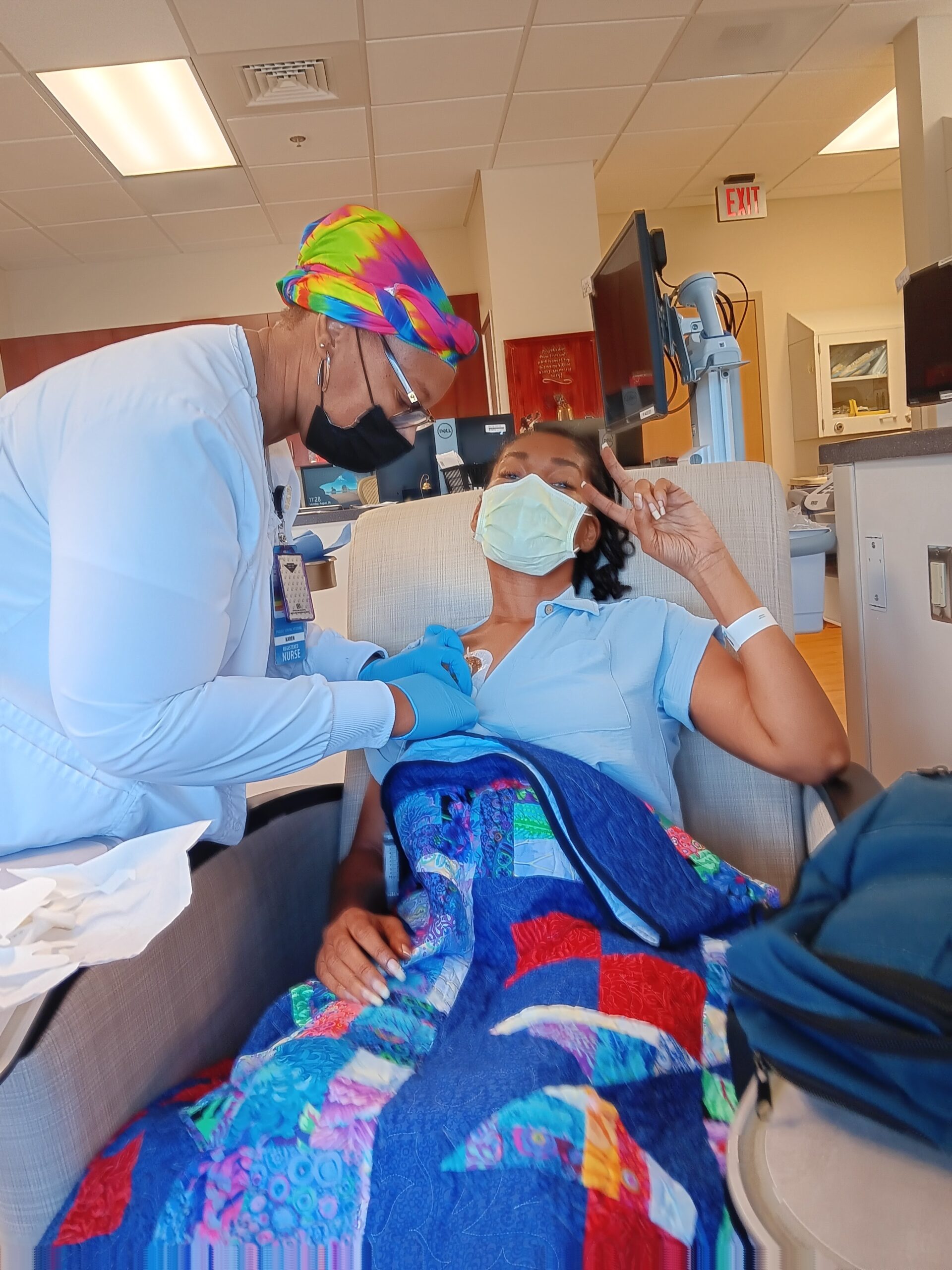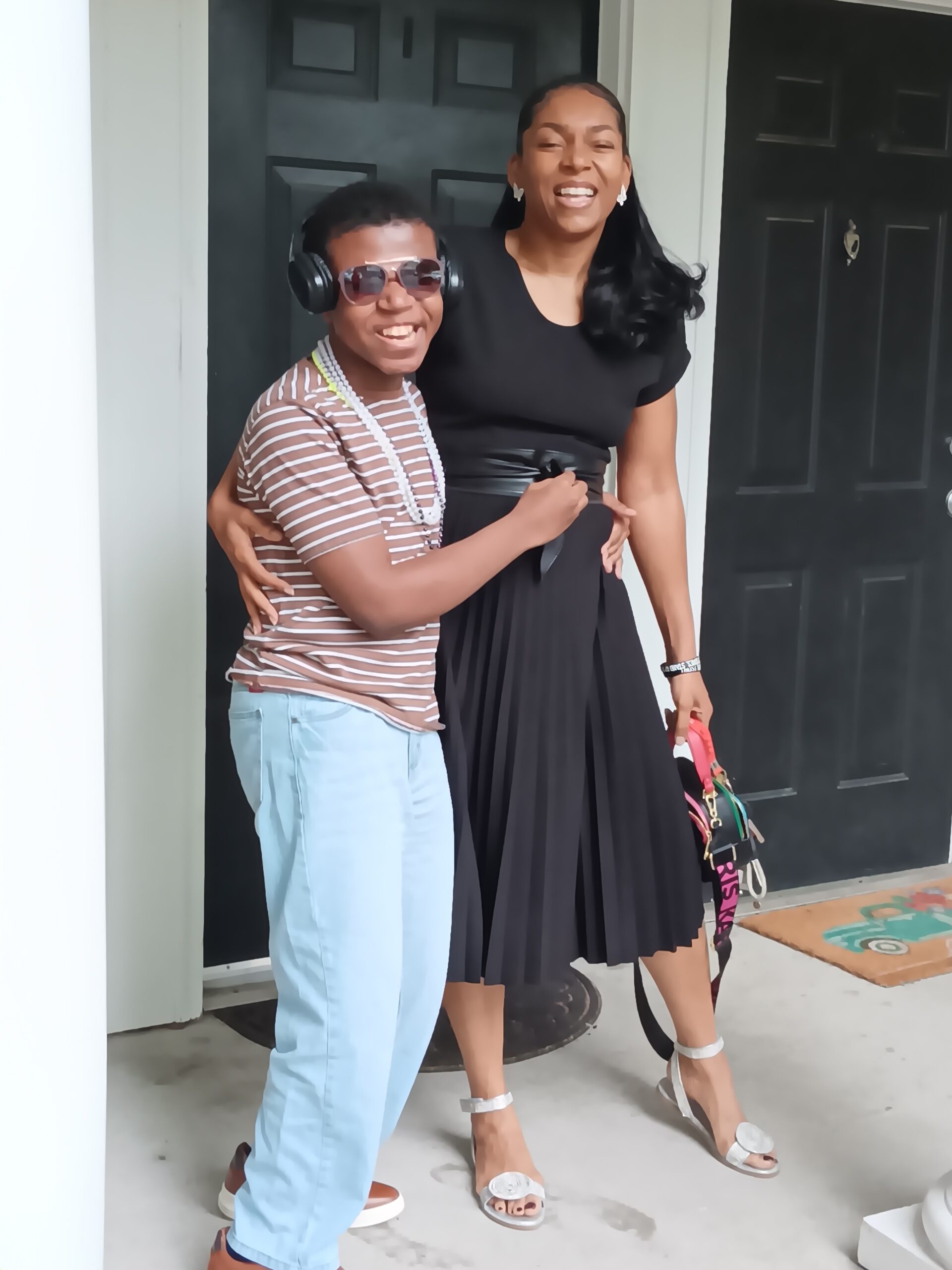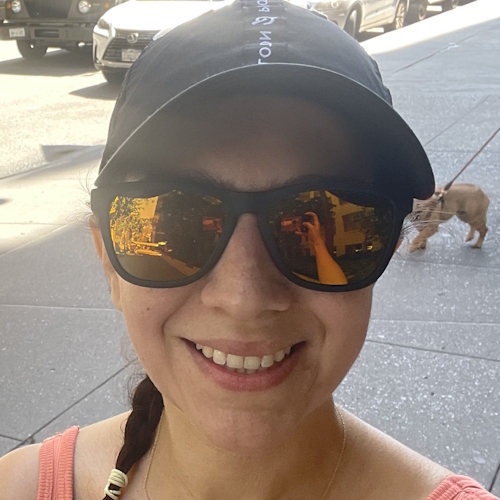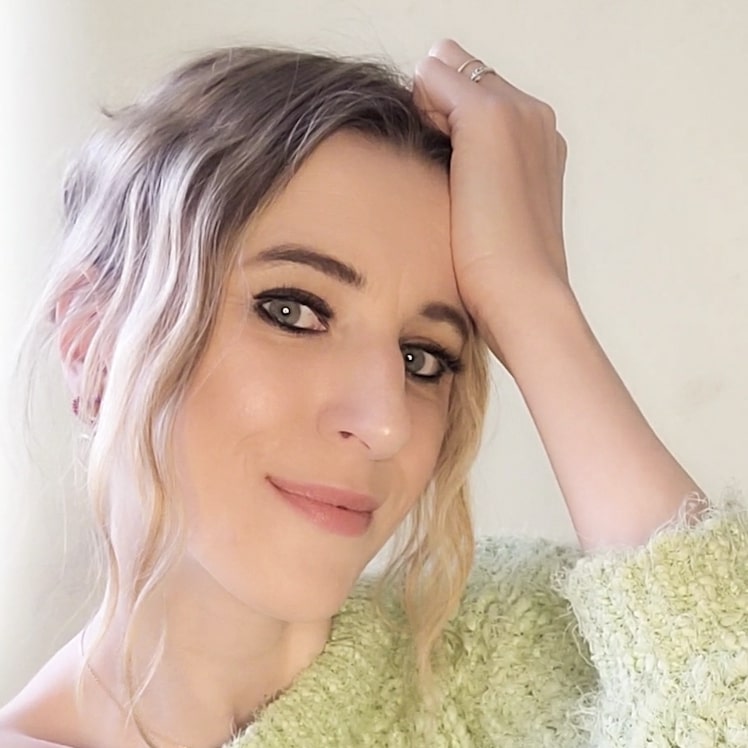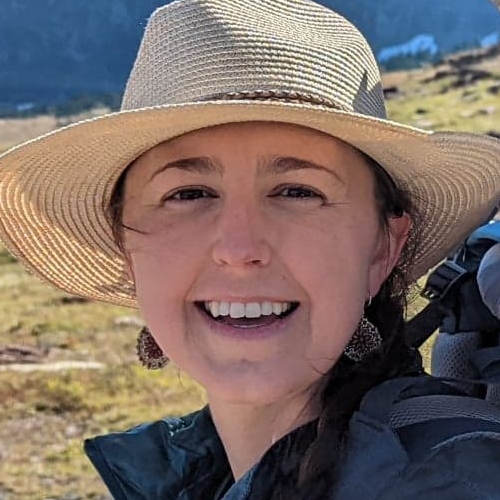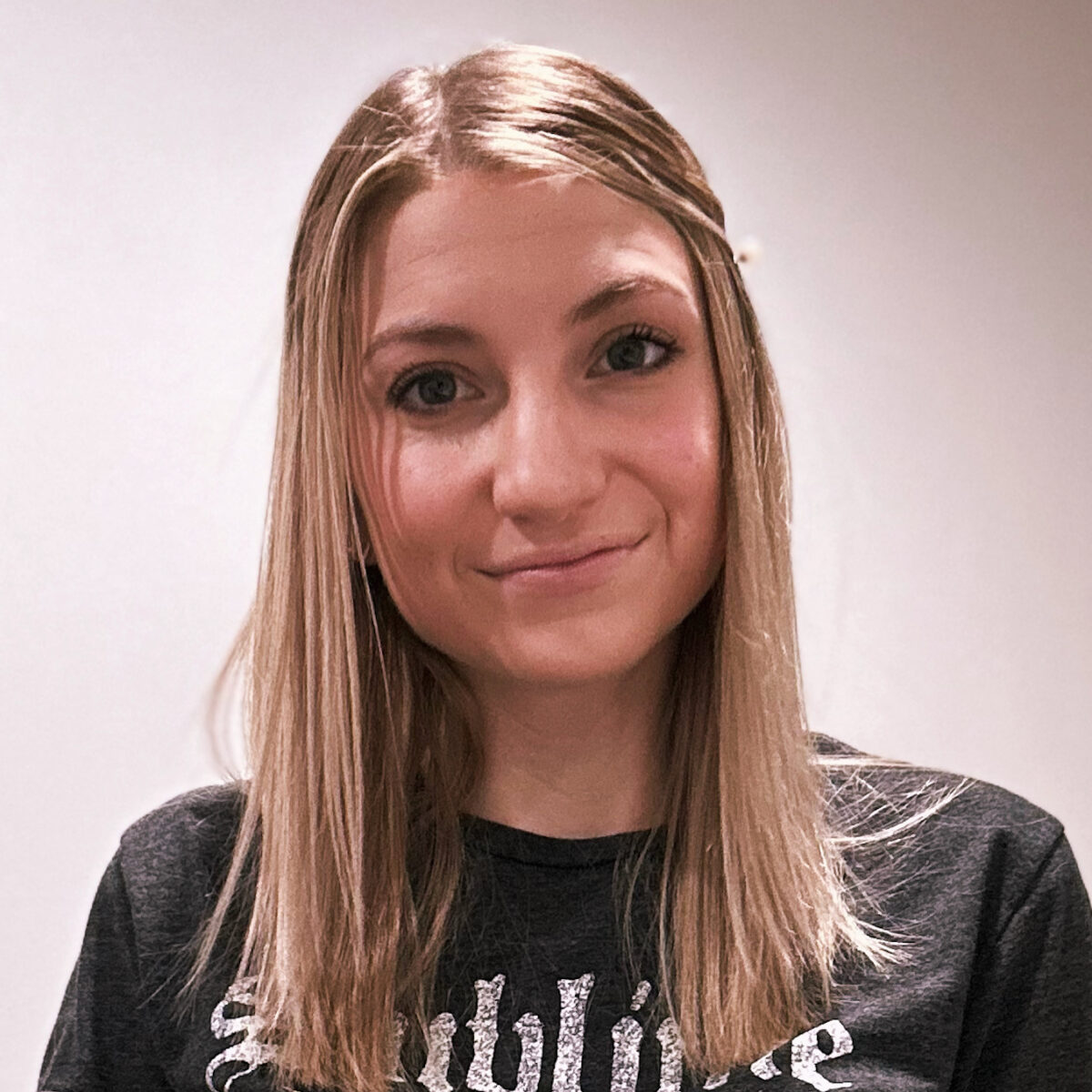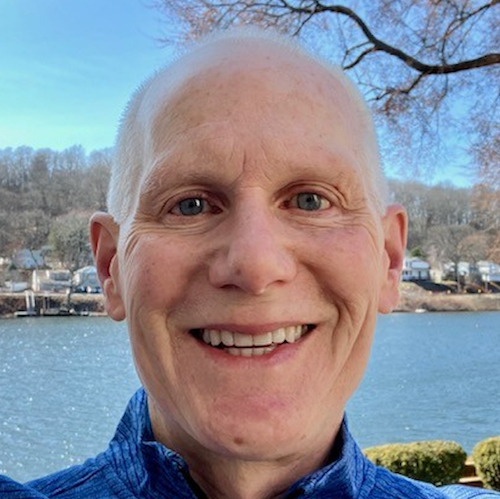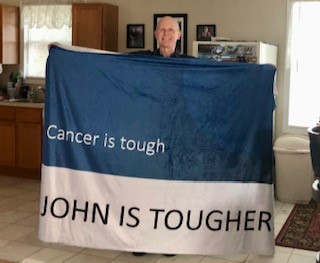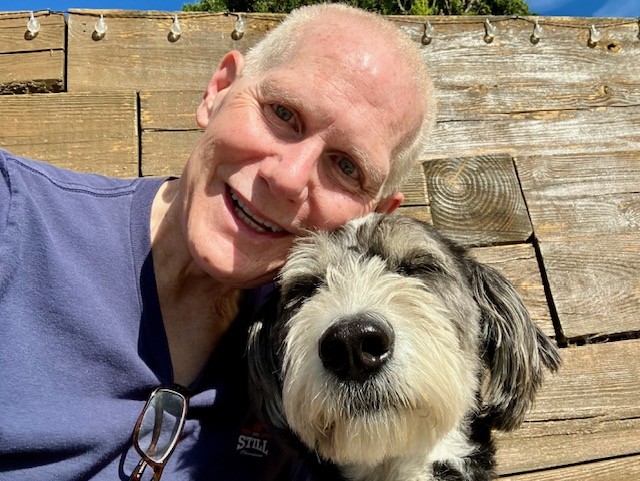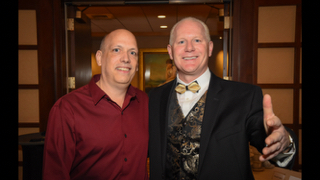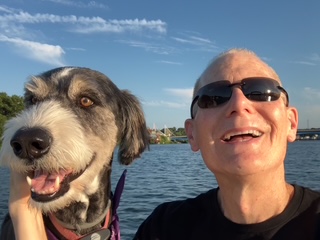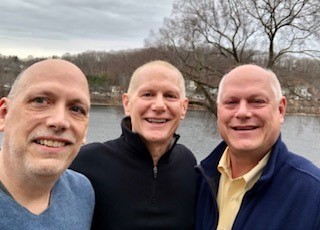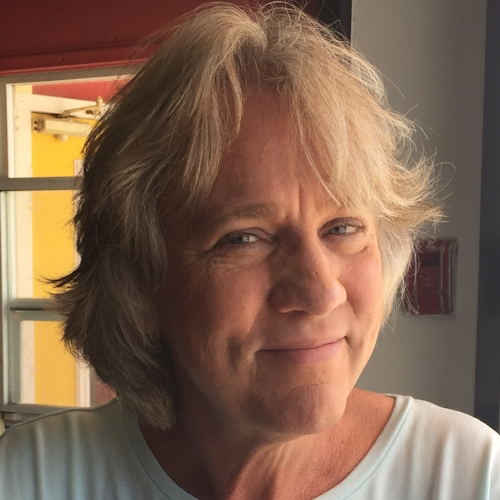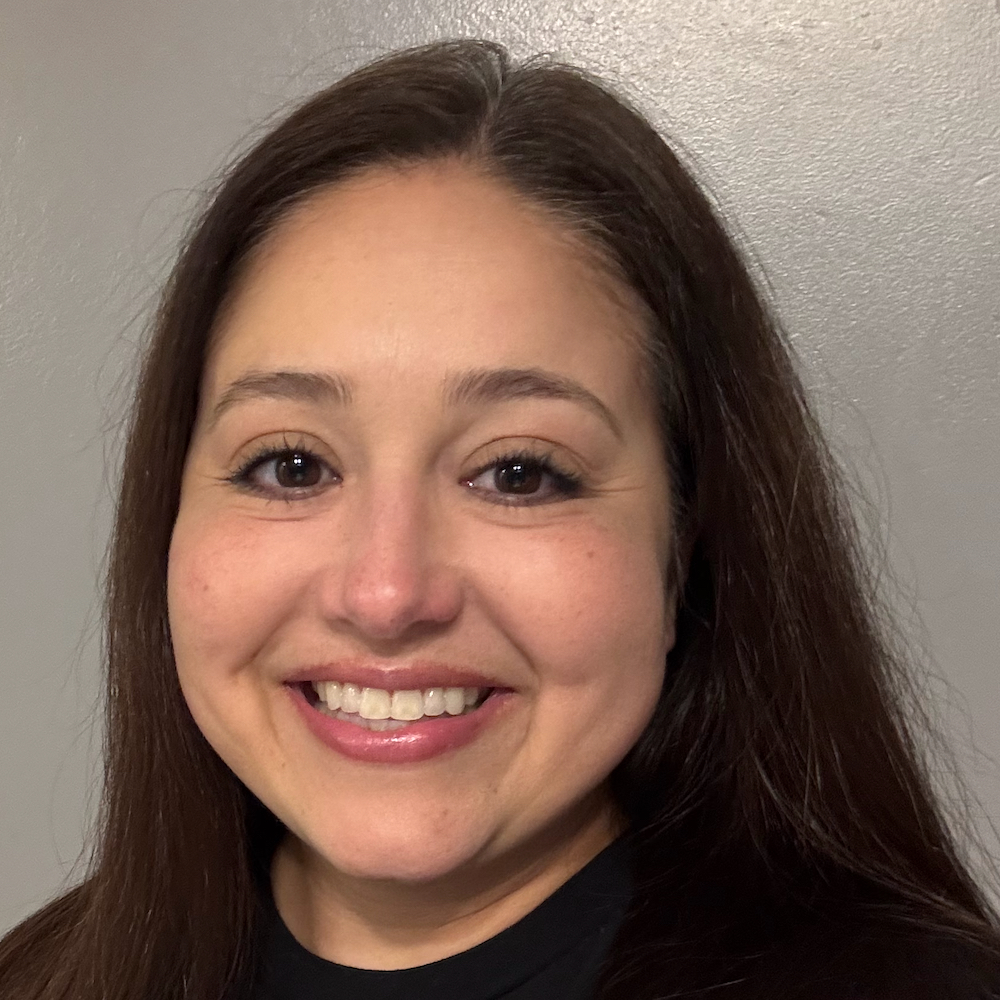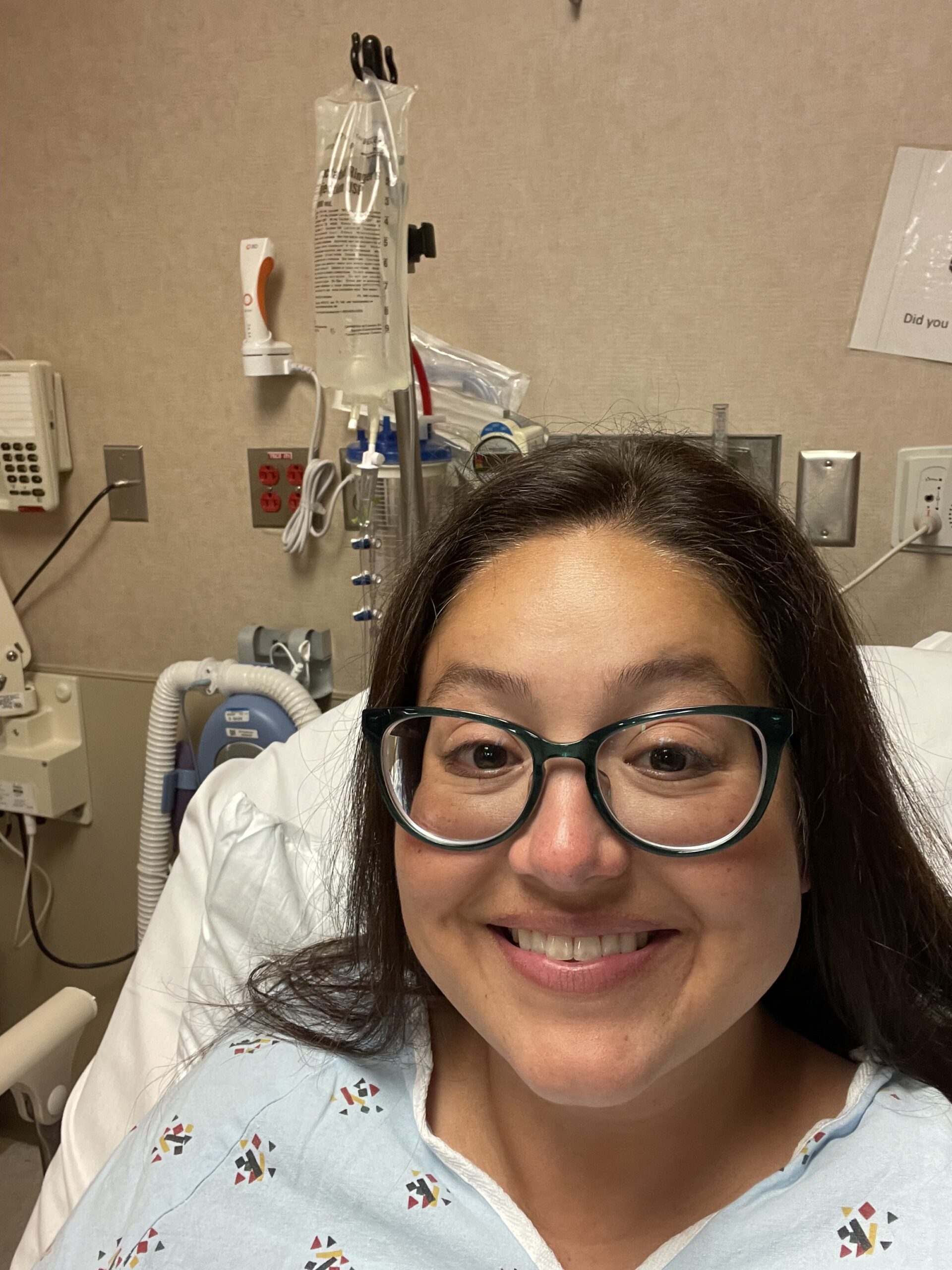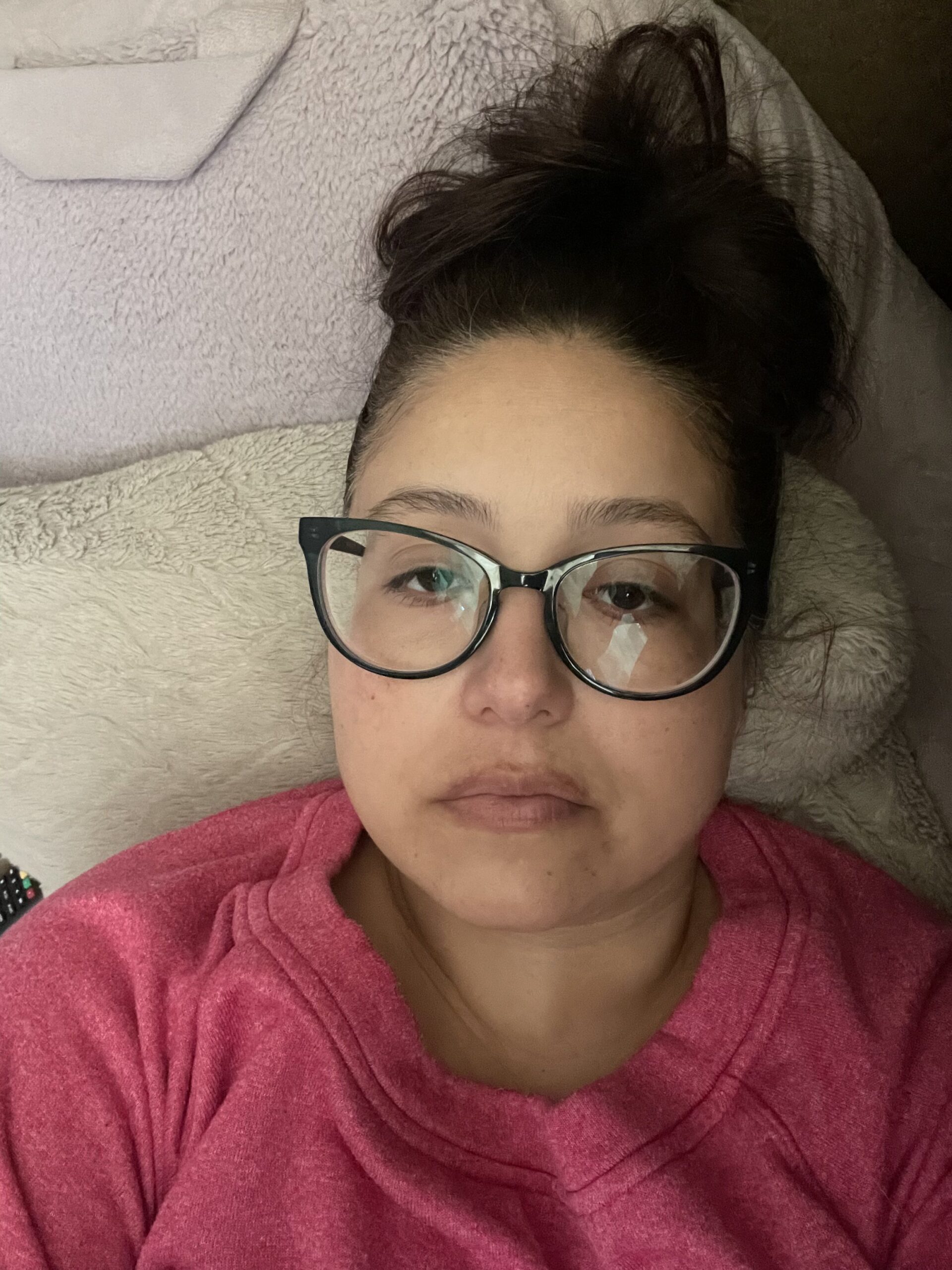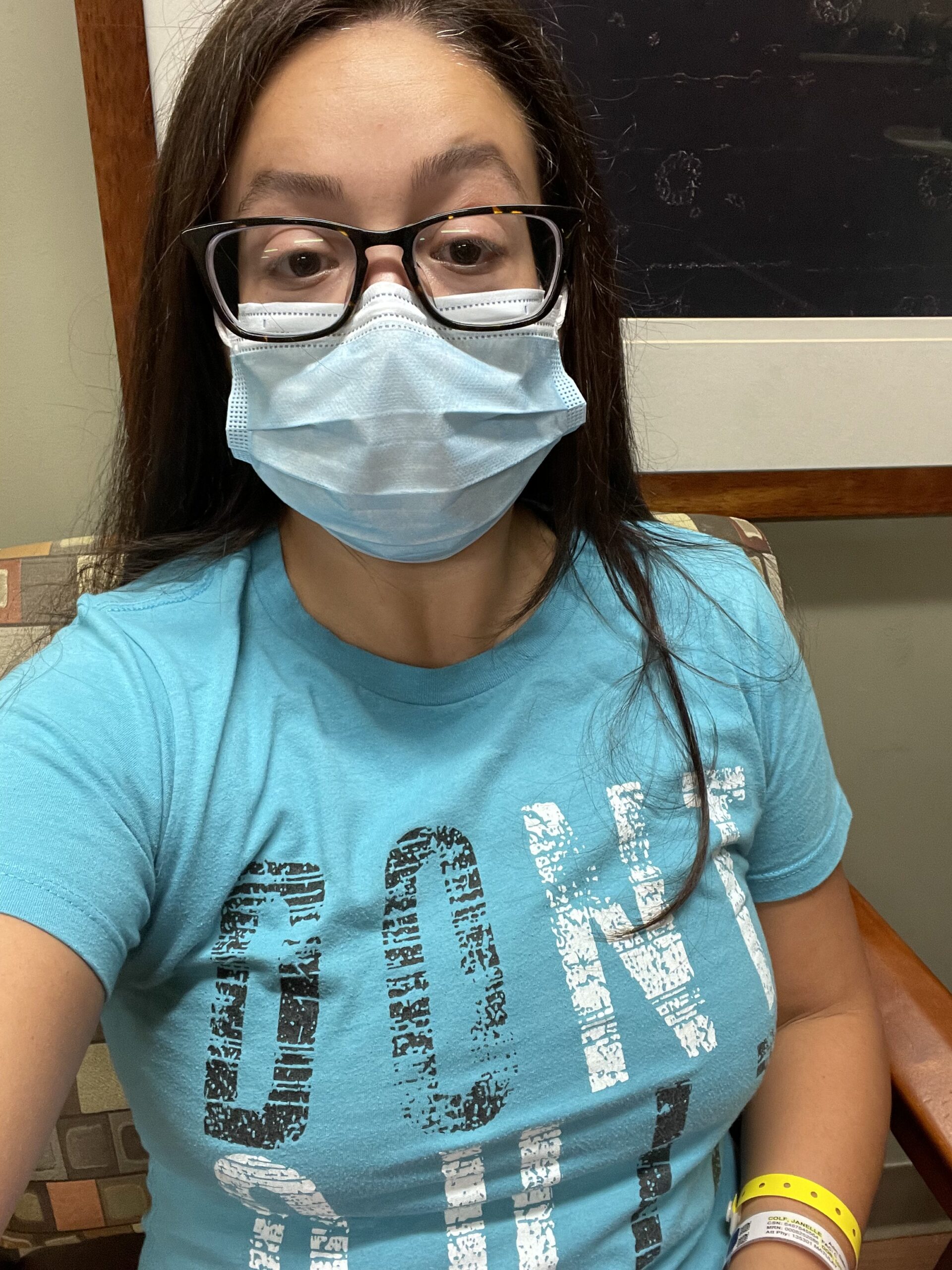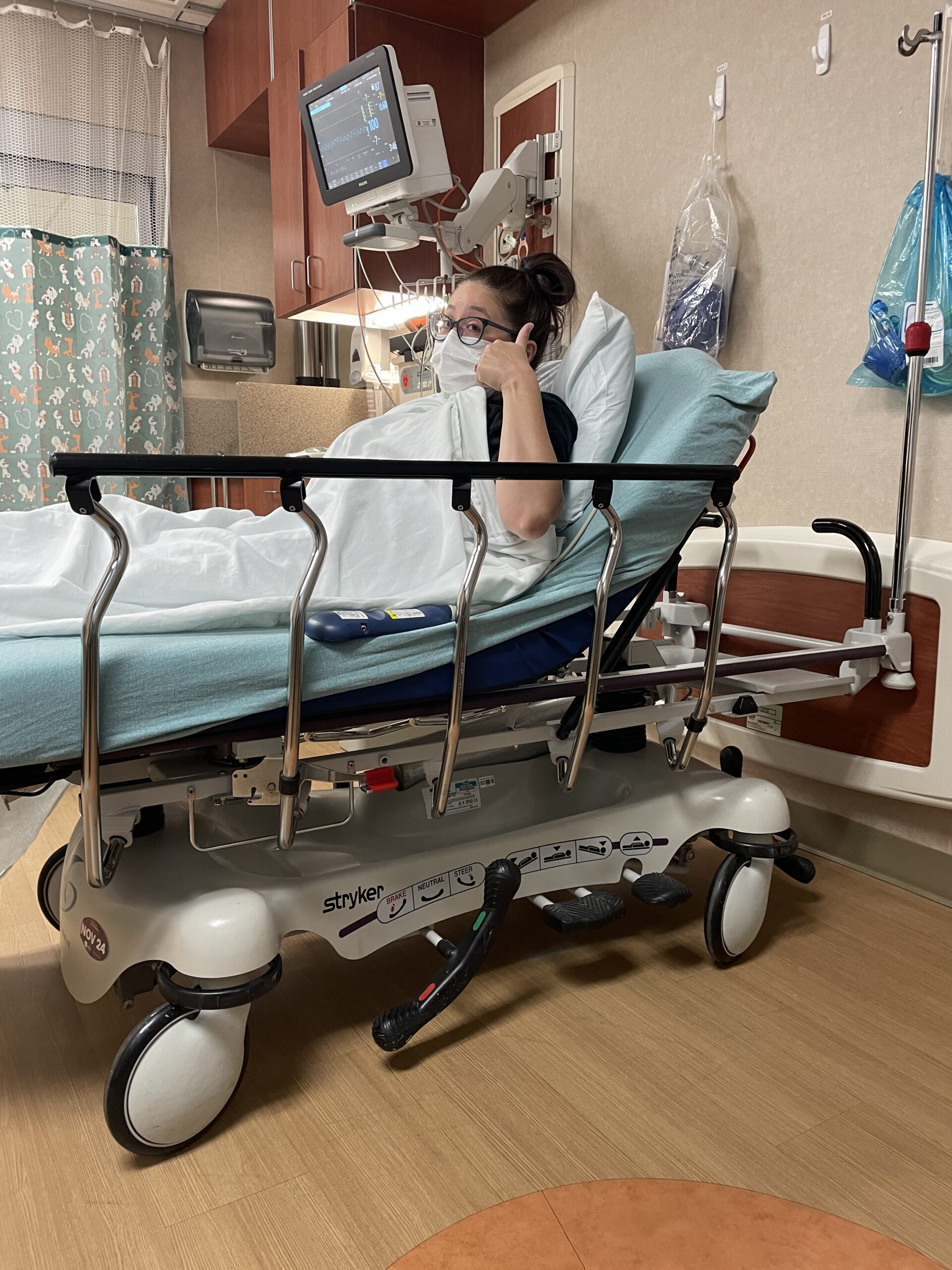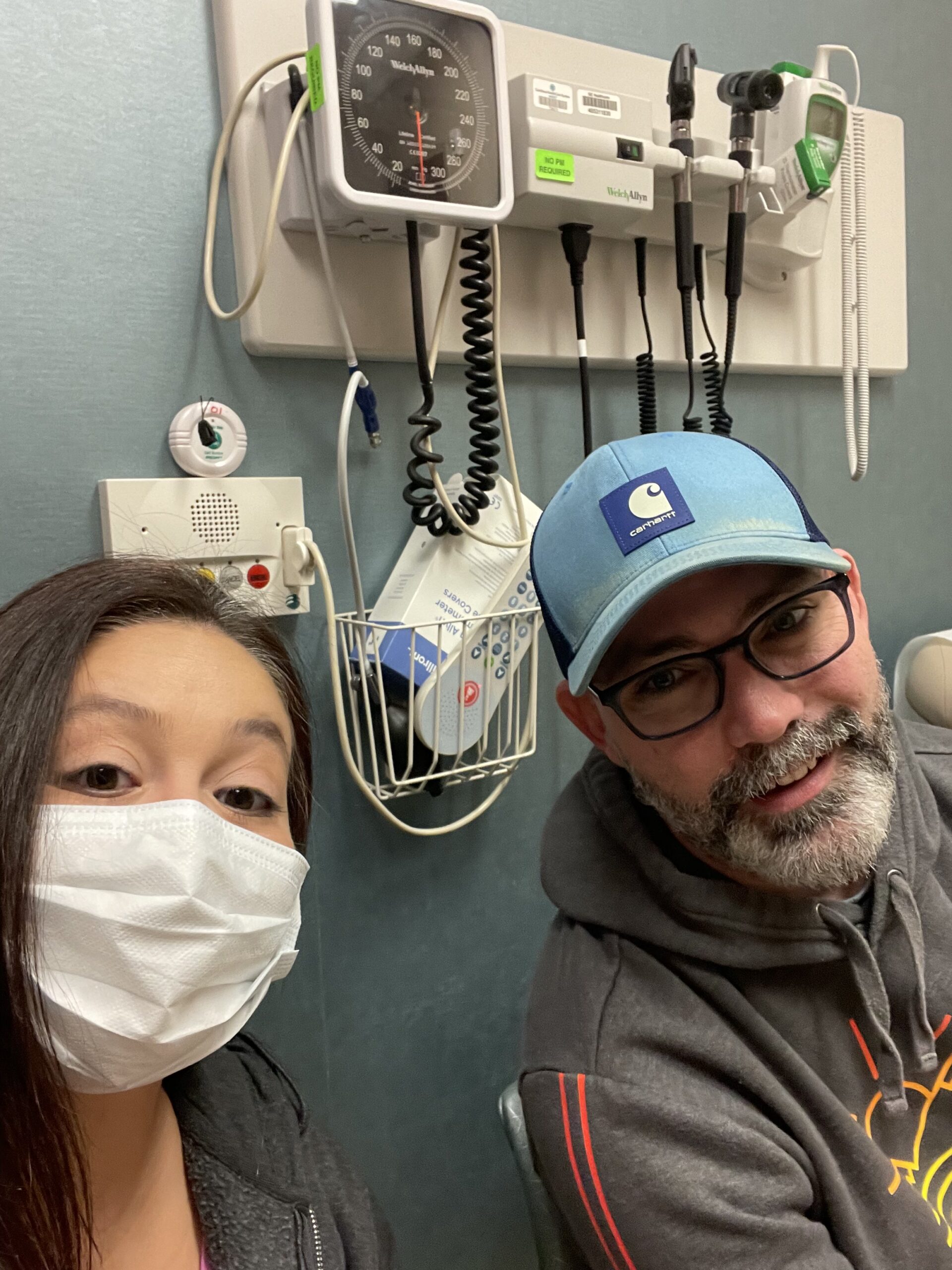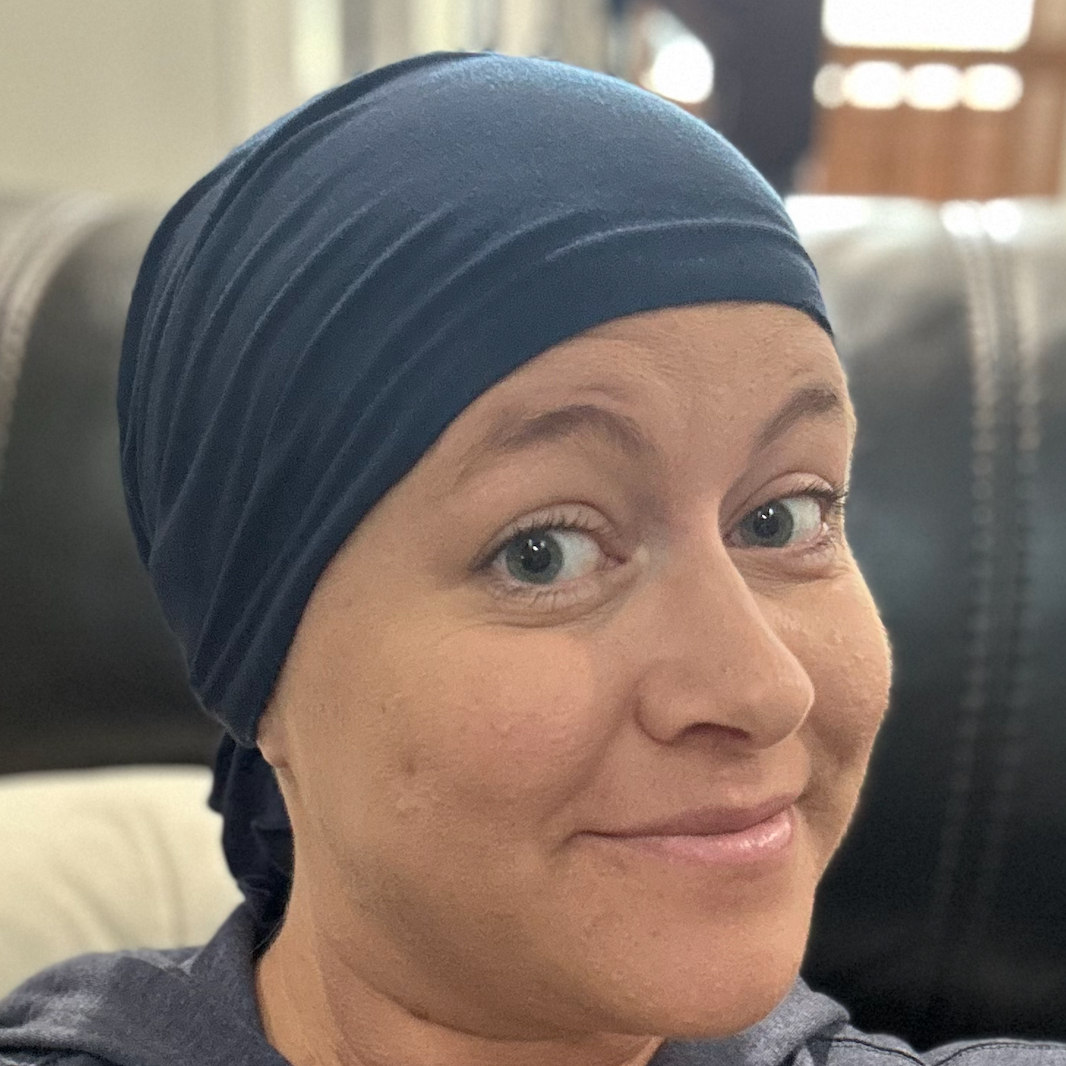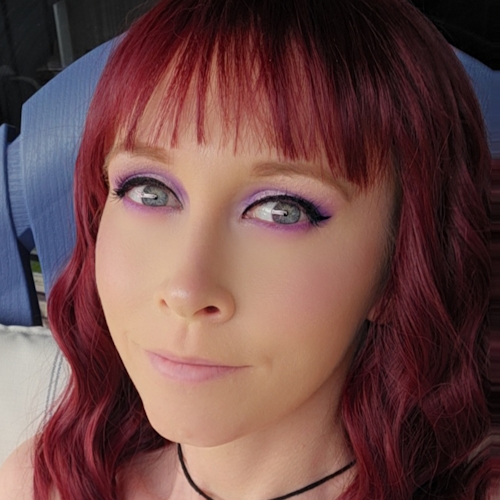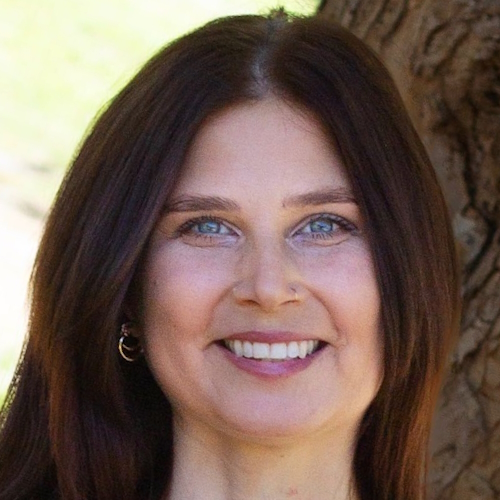From Foot Pain to Lung Cancer: Kathrin’s Unexpected Stage 4 ALK+ Diagnosis
When Kathrin was diagnosed with stage 4 ALK+ lung cancer in 2024, it came as a complete shock. She didn’t have a cough, chest pain, or shortness of breath — none of the symptoms you’d expect. Instead, it all started with subtle signs: persistent fatigue, frequent illness, and a lingering pain in her left foot that she chalked up to an injury.
Interviewed by: Nikki Murphy
Edited by: Katrina Villareal
Being a fitness professional, Kathrin assumed it was nothing serious, but after the pain worsened, an MRI revealed something unexpected: a tumor in her foot. Initially thought to be benign, the biopsy showed it was a malignant metastasis. From there, a full-body PET/CT scan uncovered the real culprit: stage 4 ALK+ lung cancer, which had already spread to her bones, abdomen, and liver.
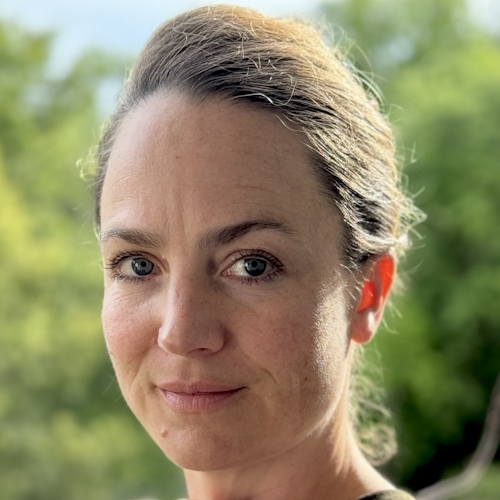
Despite the shock and the immediate fear of not surviving, biomarker testing provided a silver lining. Kathrin was ALK-positive, making her eligible for targeted therapy. Treatment began with radiation on her foot, followed by a daily ALK inhibitor pill. Within weeks, the treatment produced remarkable results.
Kathrin’s scans looked almost clear, which felt like being handed back her life. She describes this part as surreal, going from imagining death to being filled with hope. While the physical treatment has gone well, the emotional part has been more complex. Even though the cancer was under control, the reality of living with an incurable condition remains. She knows it may come back, so she consciously chooses to focus on what she can control: her mindset, her movement, and her moments of joy.
Exercise has been Kathrin’s anchor. Even during radiation, she kept moving. For her, movement isn’t just fitness; it’s therapy. It’s how she reconnects with herself, processes her emotions, and taps into her inner strength. She emphasizes the importance of staying active, not just for the body but for mental clarity and emotional balance.
Her story highlights a powerful truth: stage 4 ALK+ lung cancer doesn’t always look like what we expect, especially in women. Kathrin’s experience is a reminder of the importance of advocating for your health, listening to your body, and honoring your strength, even when life throws something unimaginable your way.
Watch Kathrin’s full interview to learn more about her story:
- She had no cough, just foot pain. That’s how her stage 4 ALK+ lung cancer was discovered.
- Kathrin opens up about the emotional whiplash of a sudden diagnosis.
- How yoga and exercise became her daily lifeline through stage 4 ALK+ lung cancer.
- Why Kathrin believes powerful treatments and positivity can change everything.
- Name: Kathrin W.
- Age of Diagnosis:
- 44
- Diagnosis:
- Lung Cancer
- Staging:
- Stage 4
- Mutation:
- ALK+
- Symptoms:
- Weakness
- Decline of performance in sports
- Depression
- Pain in left foot
- Treatments:
- Radiation therapy
- Targeted therapy
This interview has been edited for clarity and length. This is not medical advice. Please consult with your healthcare provider to make informed treatment decisions.
The views and opinions expressed in this interview do not necessarily reflect those of The Patient Story.

Inspired by Kathrin's story?
Share your story, too!
More ALK+ Lung Cancer Stories
Kathrin W., Lung Cancer, ALK+, Stage 4
Symptoms: Weakness, decline of performance in sports, depression, pain in left foot
Treatments: Radiation therapy, targeted therapy
Stephanie W., Non-Small Cell Lung Cancer, ALK+, Stage 2B
Symptoms: Persistent cough, wheezing
Treatments: Surgery (bilobectomy), chemotherapy, targeted therapy
Lindsay W., Non-Small Cell Lung Cancer, ALK+, Stage 4
Symptom: Severe pain in her side
Treatments: Chemotherapy (targeted therapy), radiation
Shyreece Pompey, Non-Small Cell Lung Cancer, ALK+, Stage 4 (Update)
Symptom: Shortness of breath
Treatments: Chemotherapy (carboplatin, pemetrexed & bevacizumab), targeted therapy (crizotinib & alectinib), AT13387 (HSP90 inhibitor)
Dan W., Non-Small Cell Lung Cancer, ALK+, Stage 4
Symptoms: Cold-like symptoms, shortness of breath, chest pains
Treatments: Radiation, targeted therapy (alectinib)
